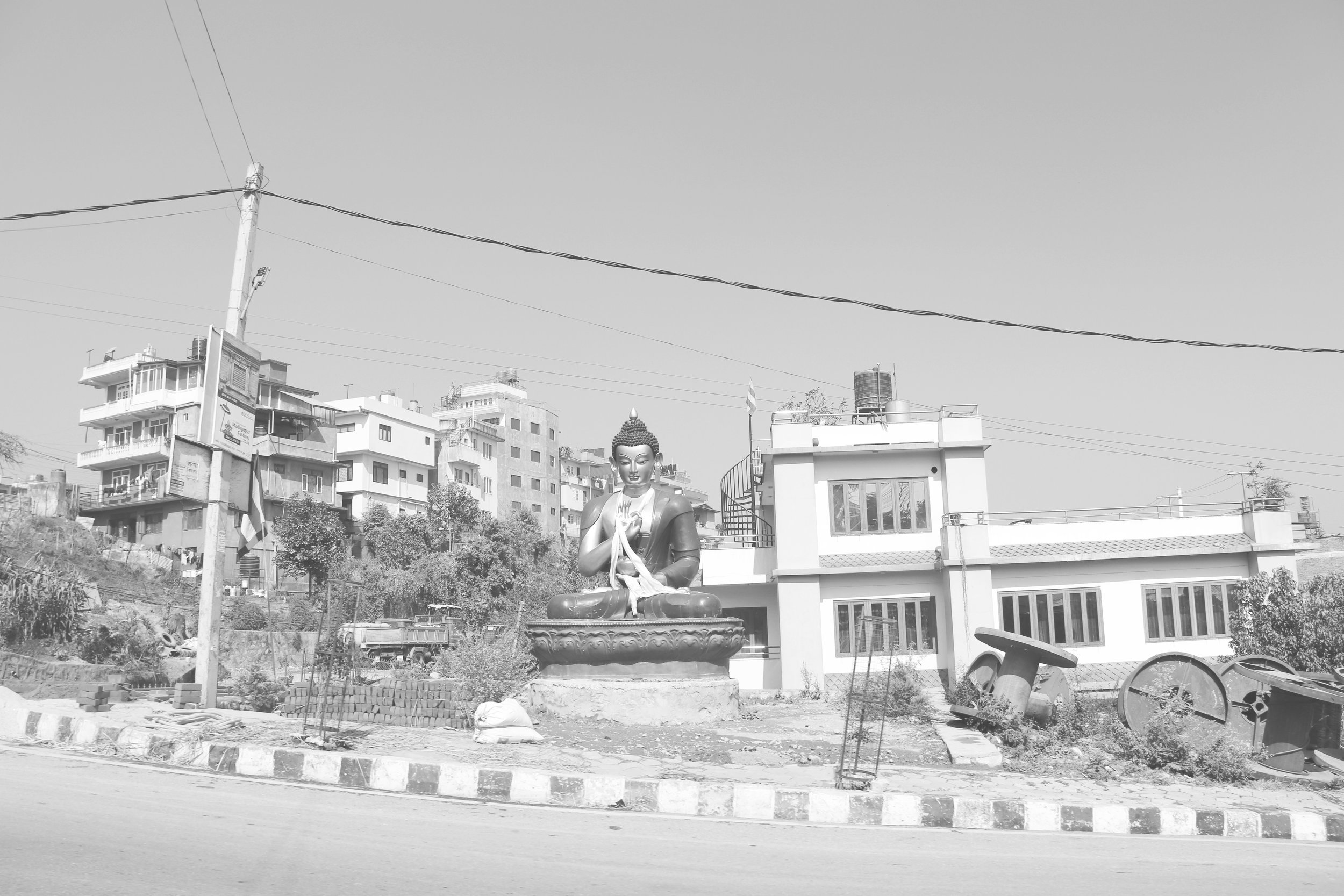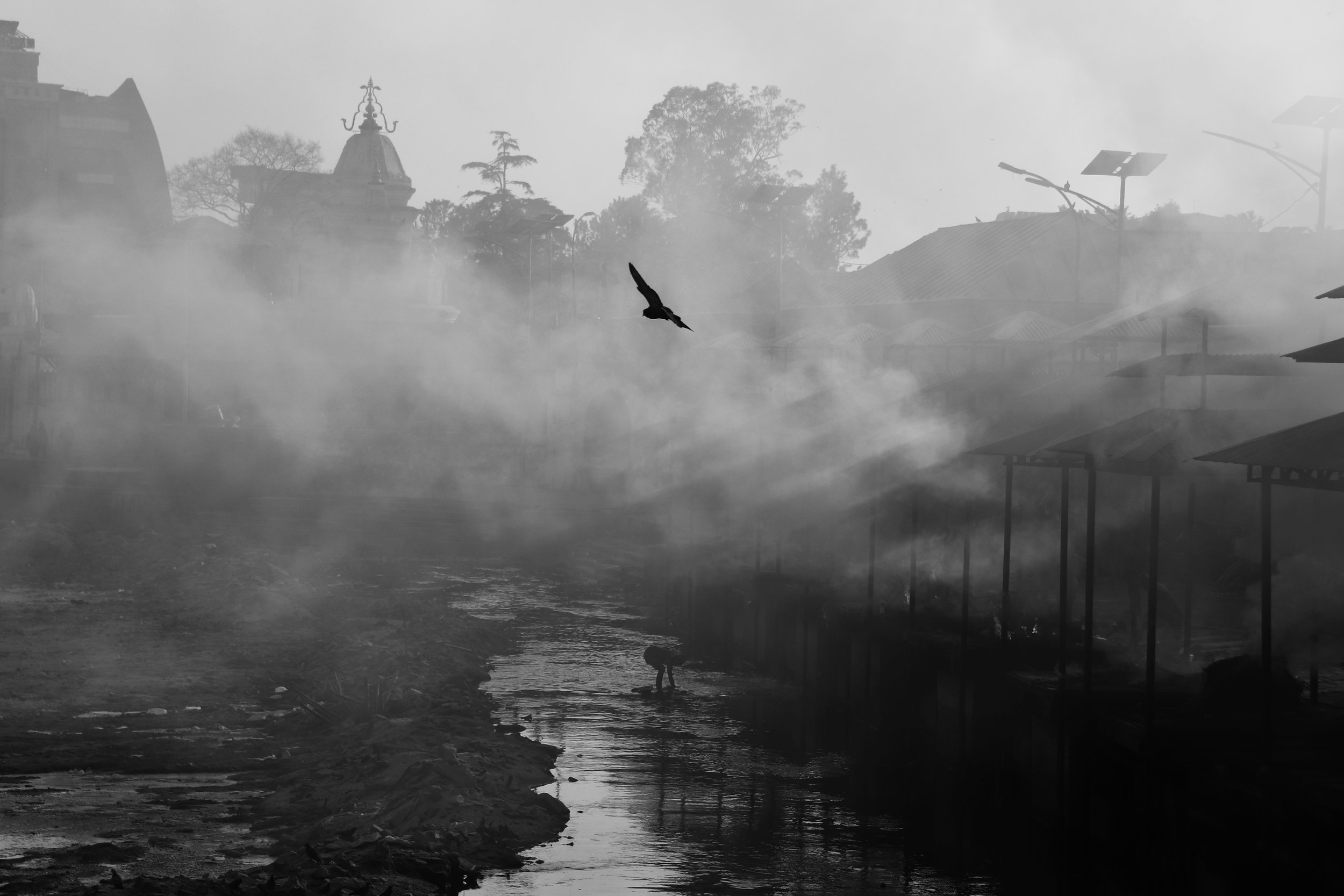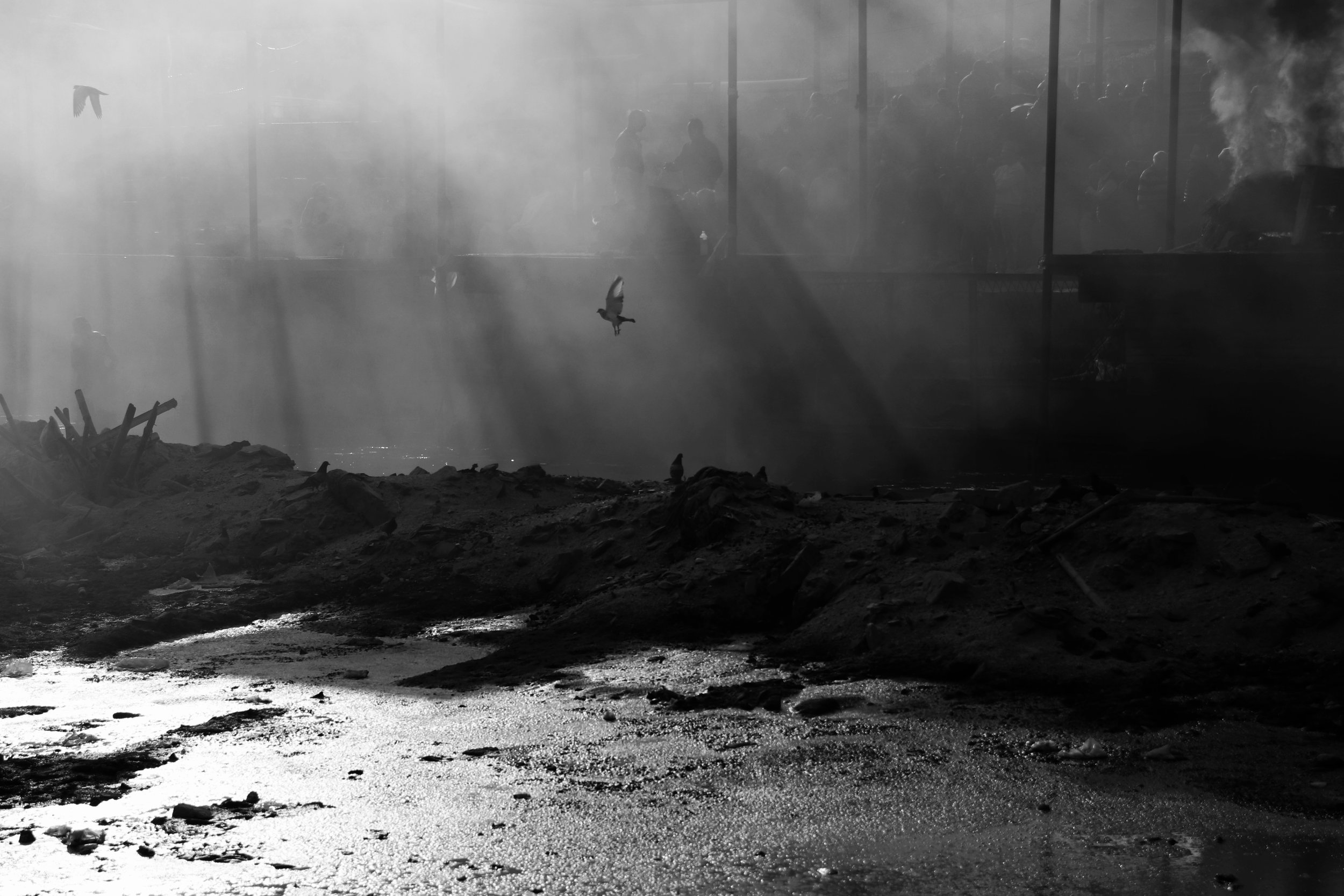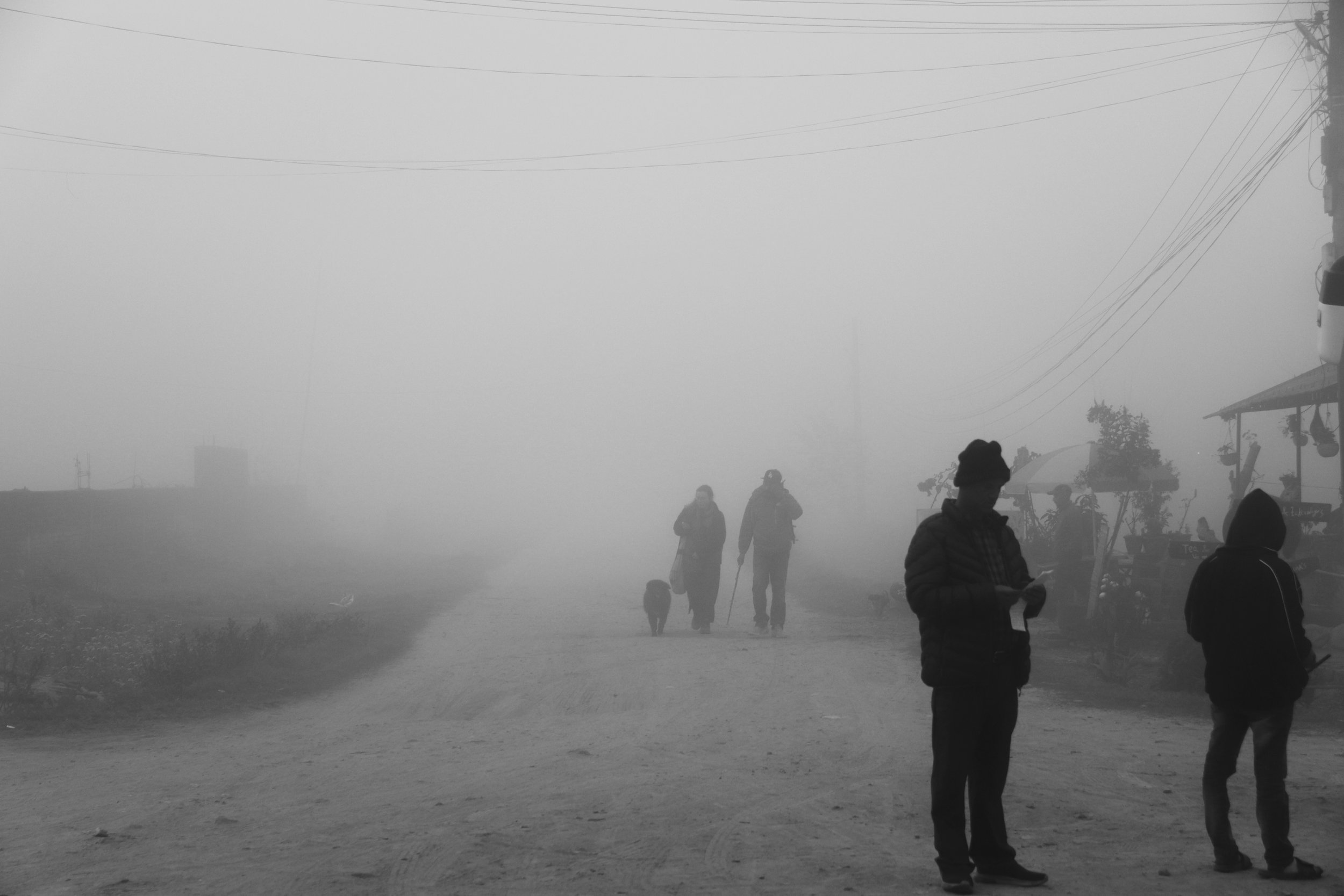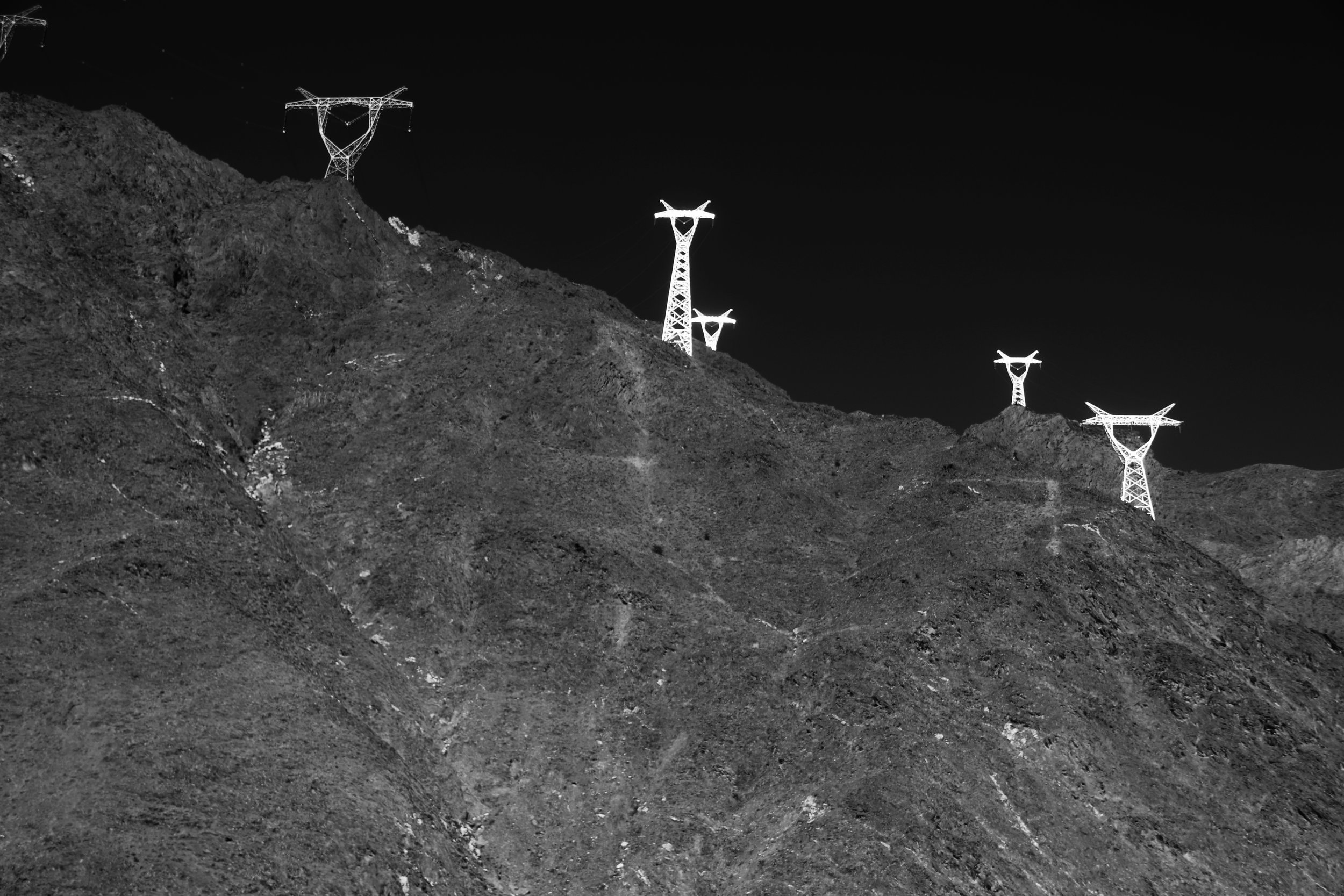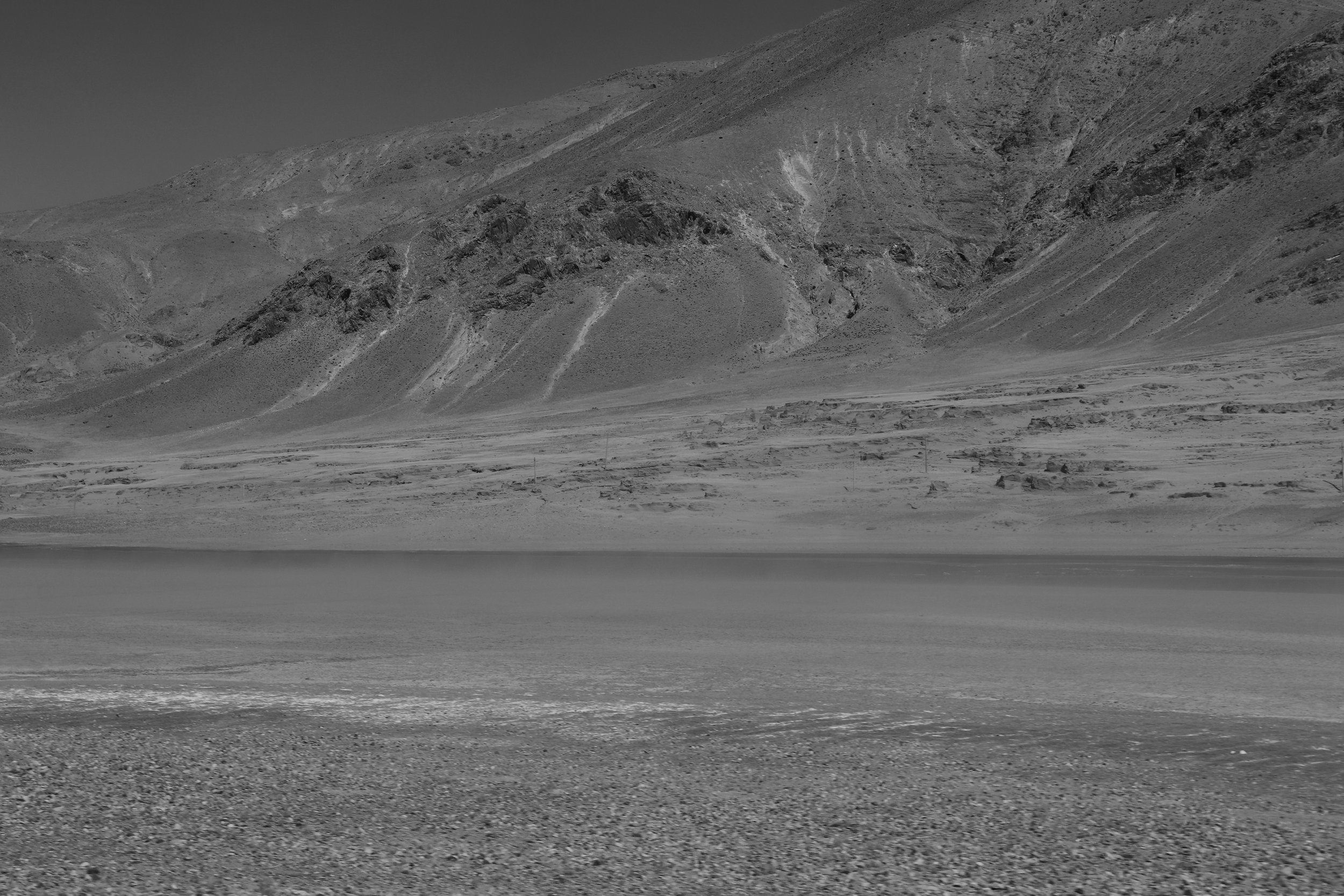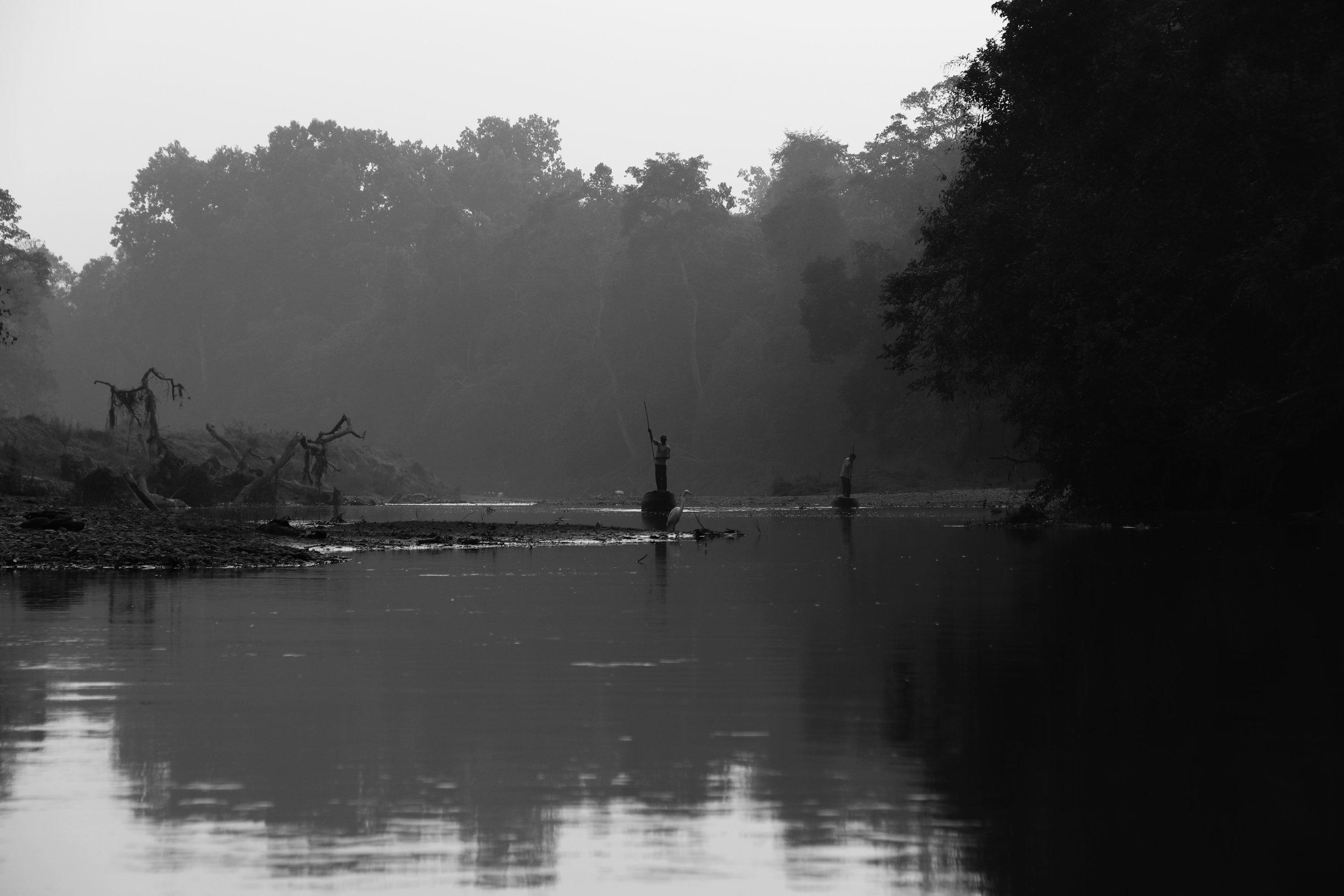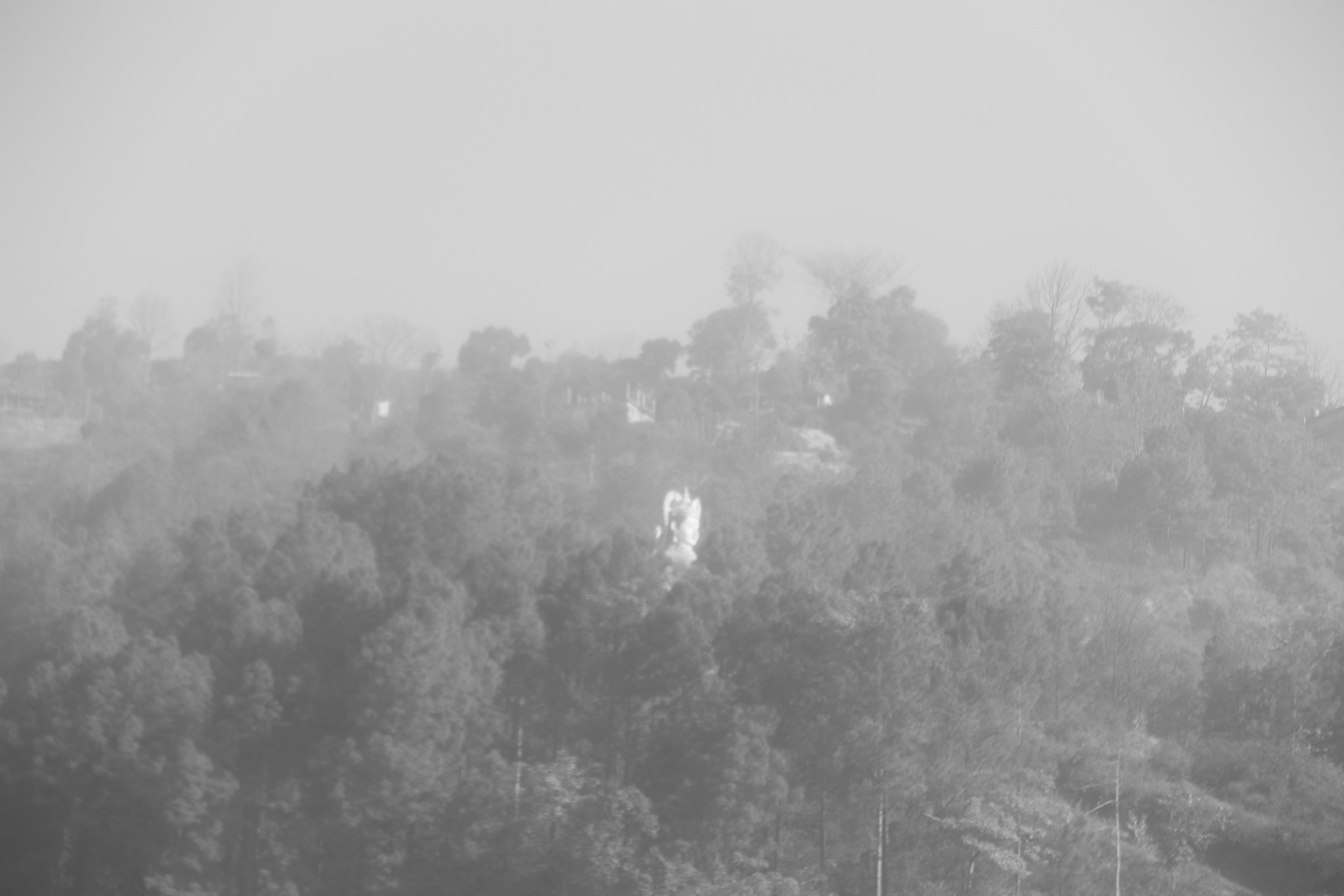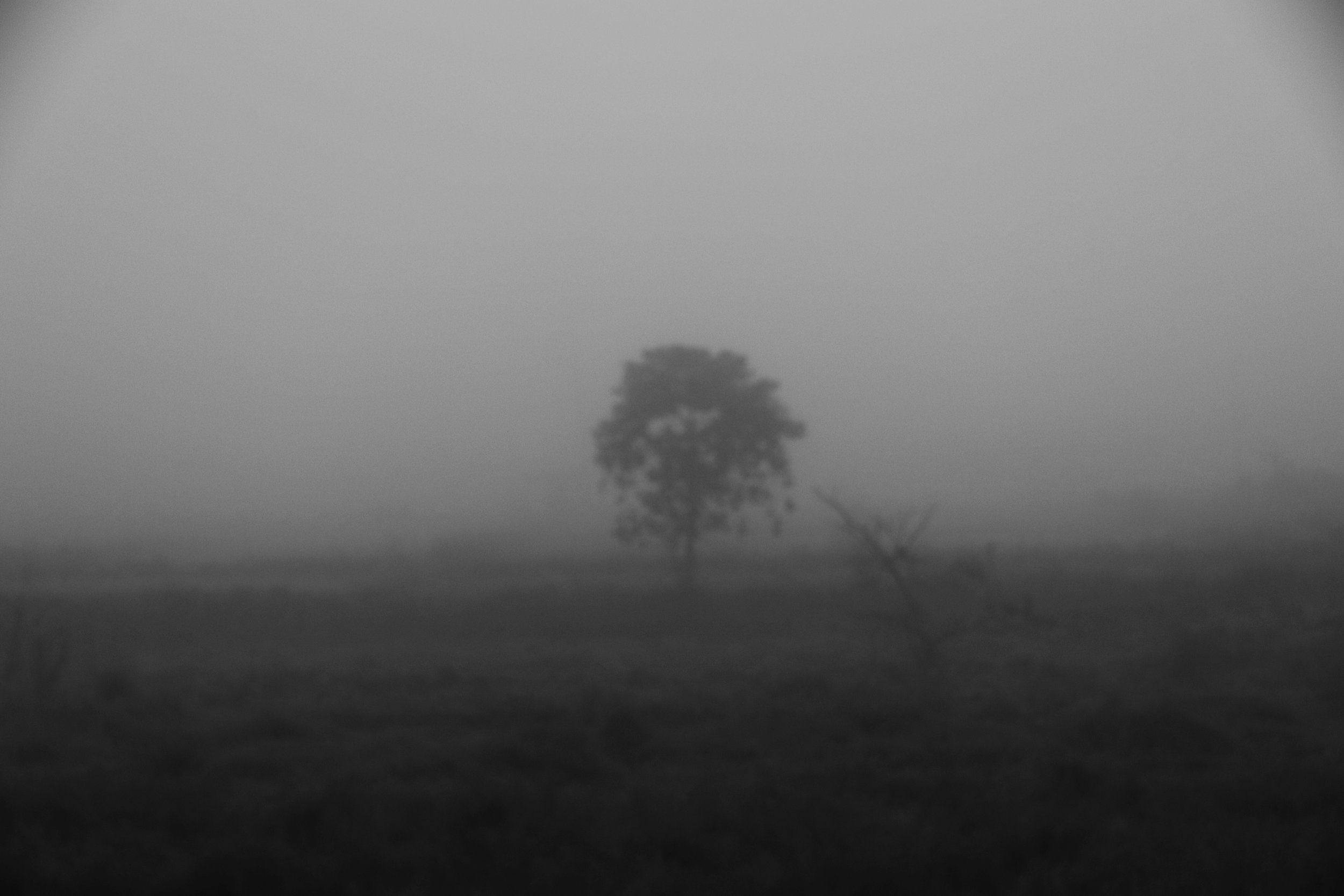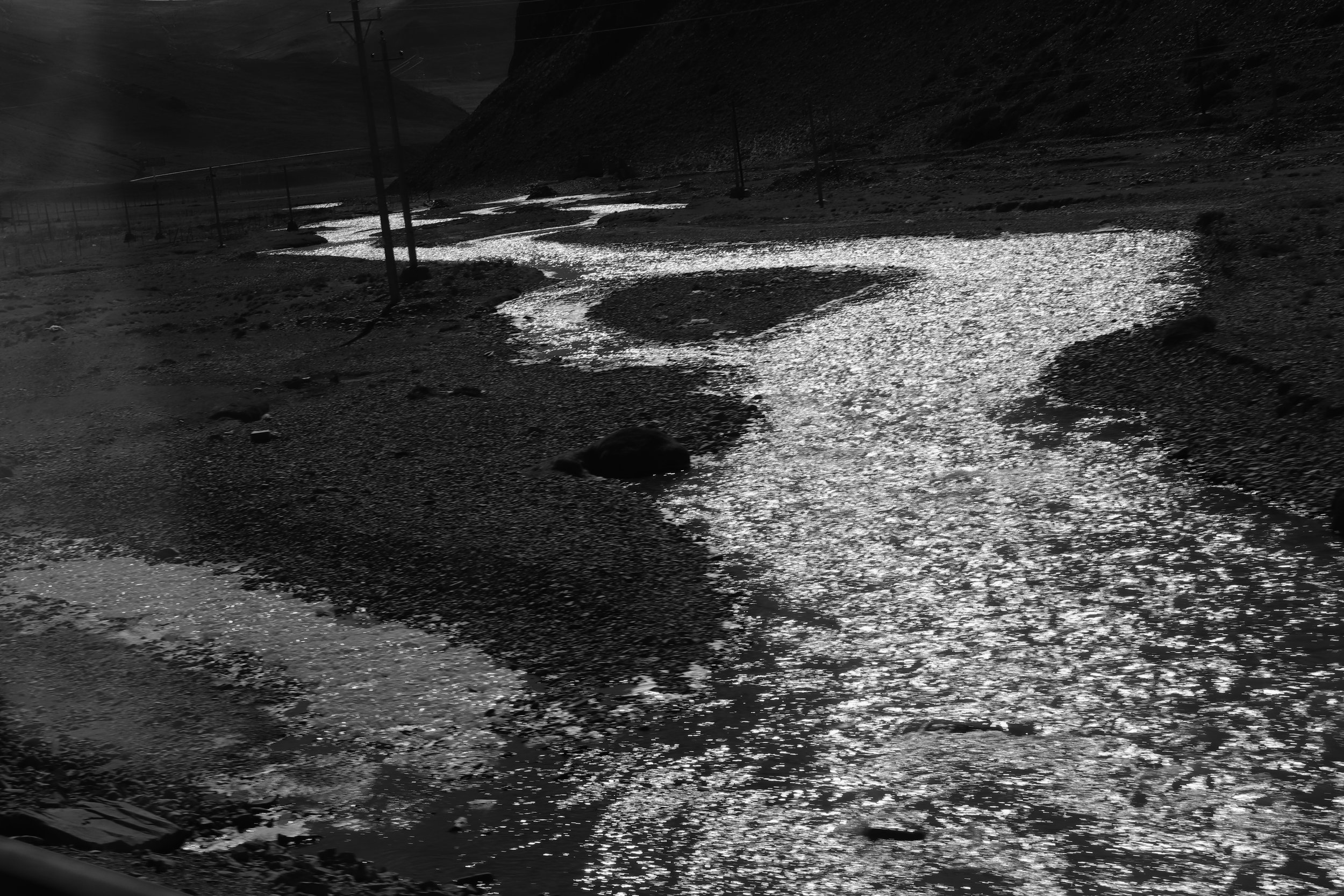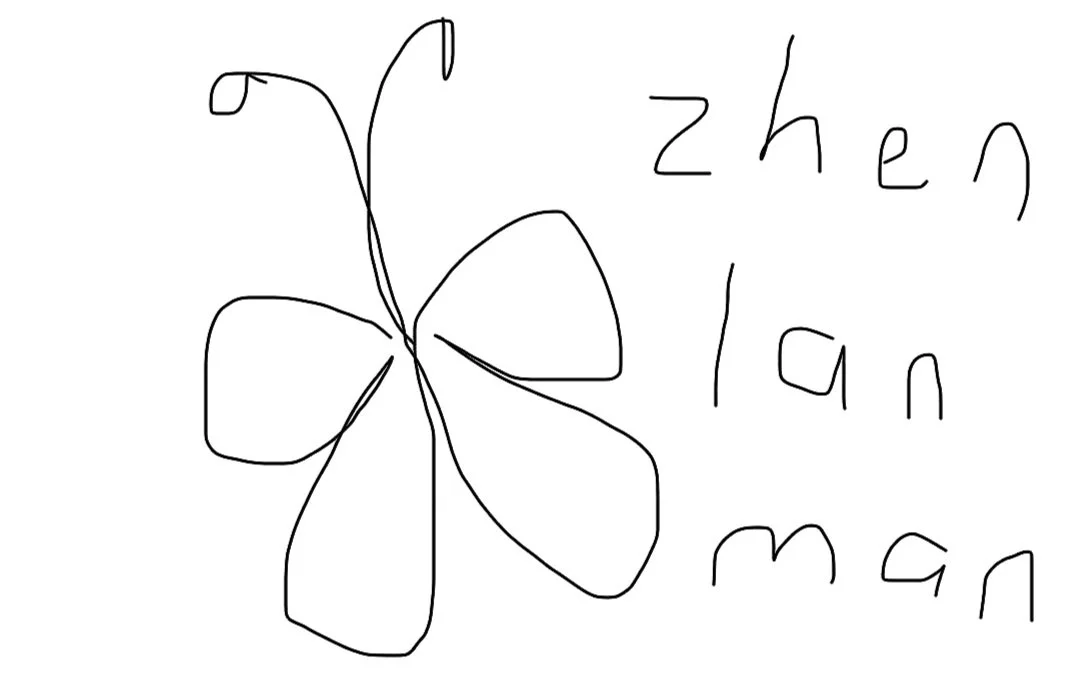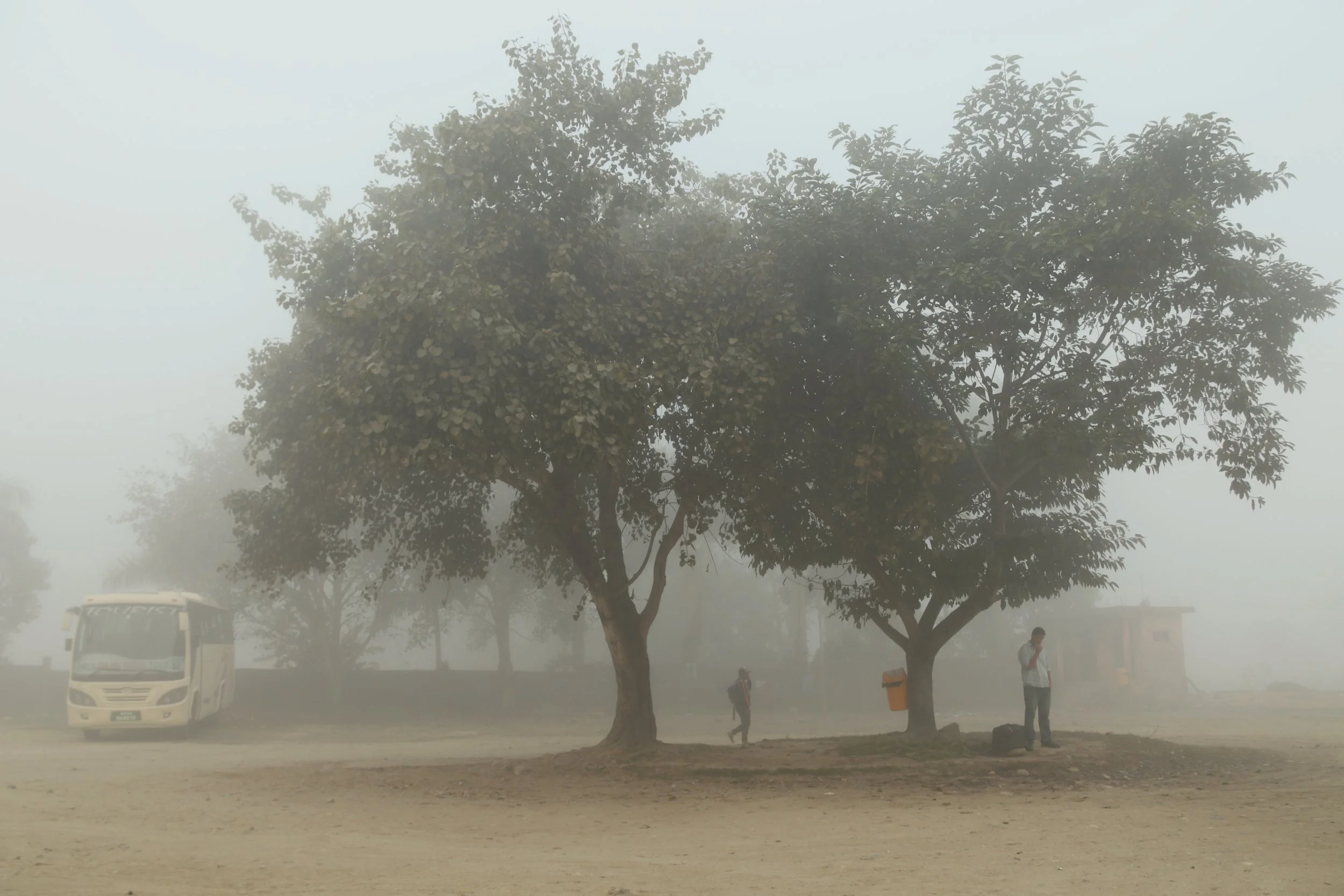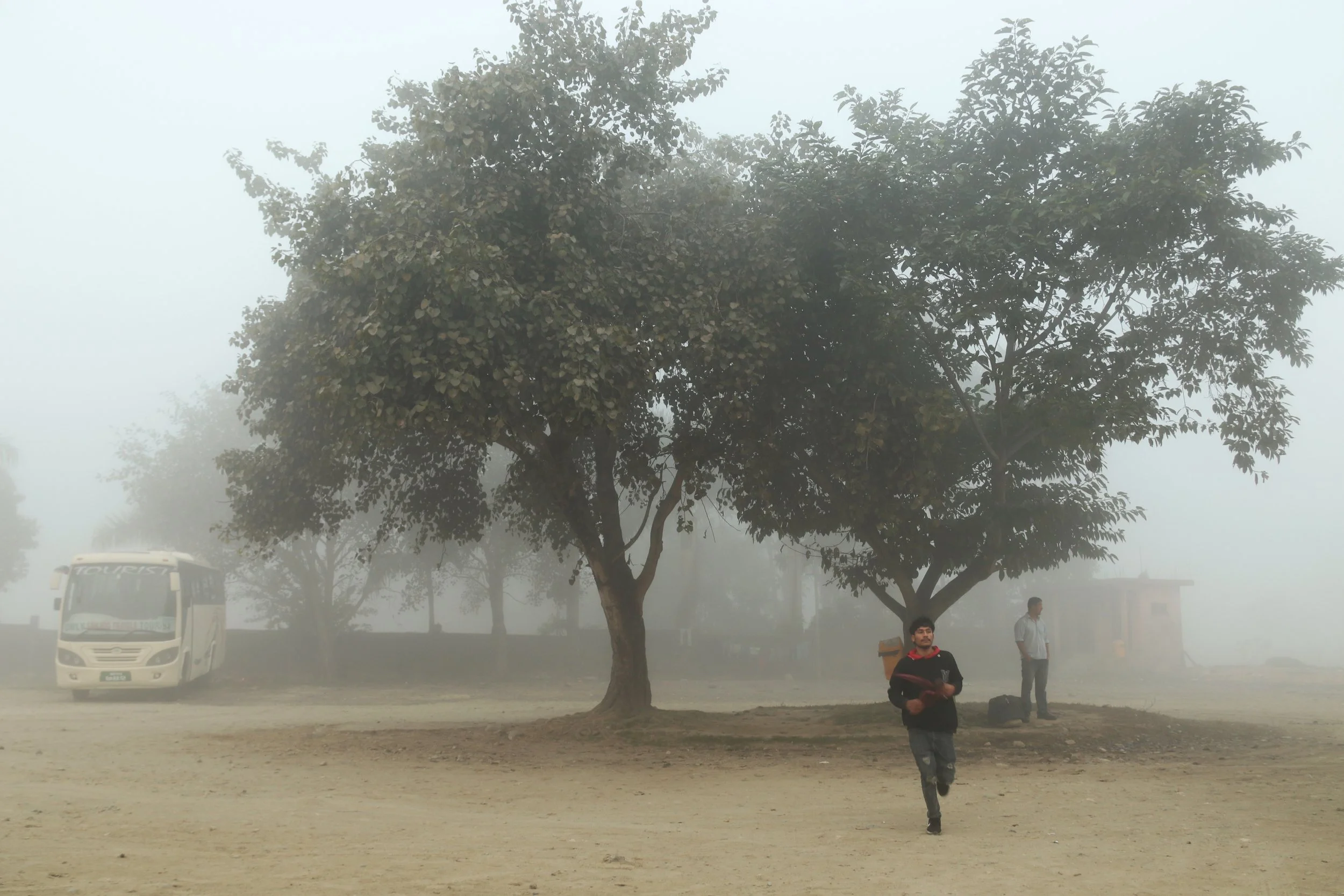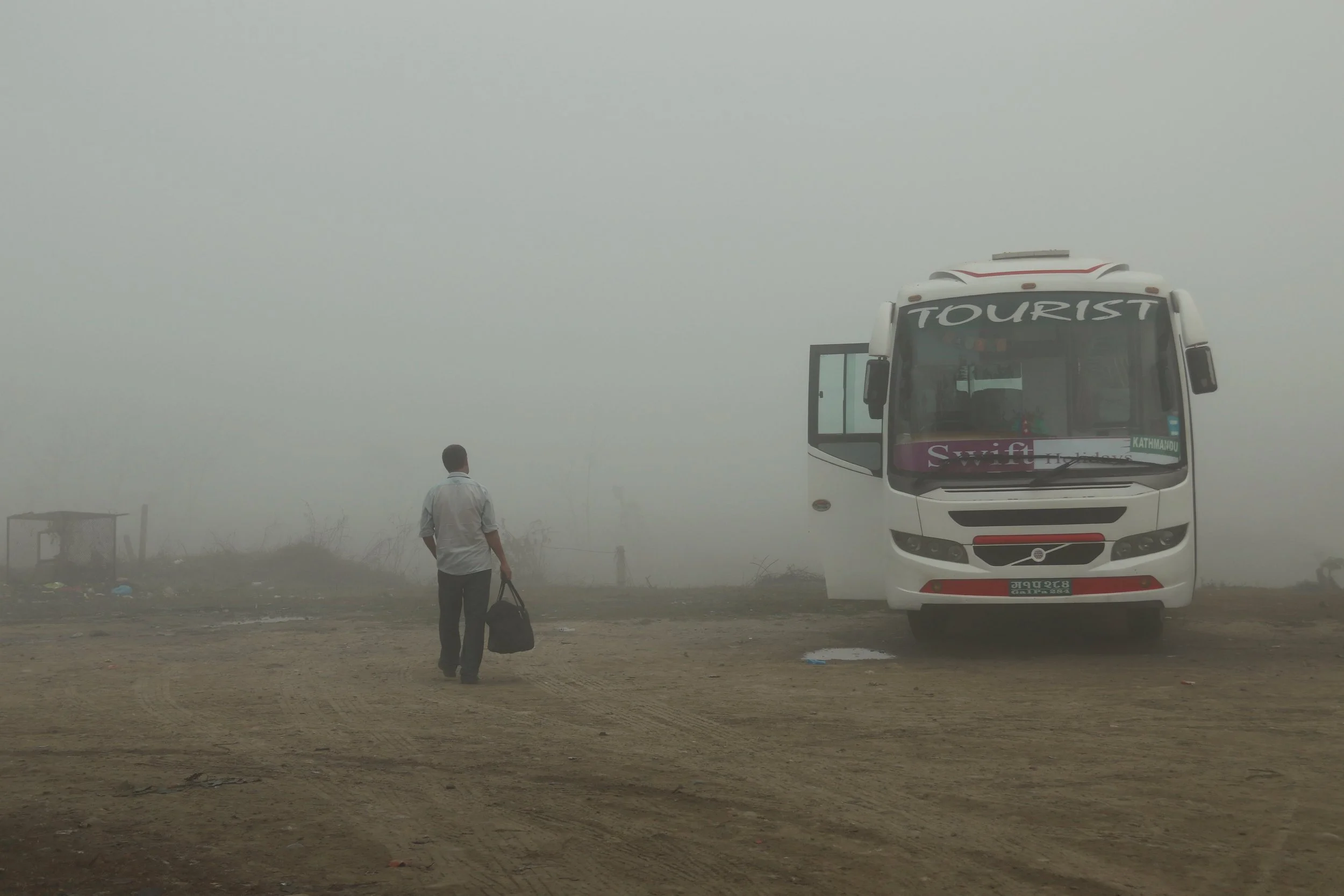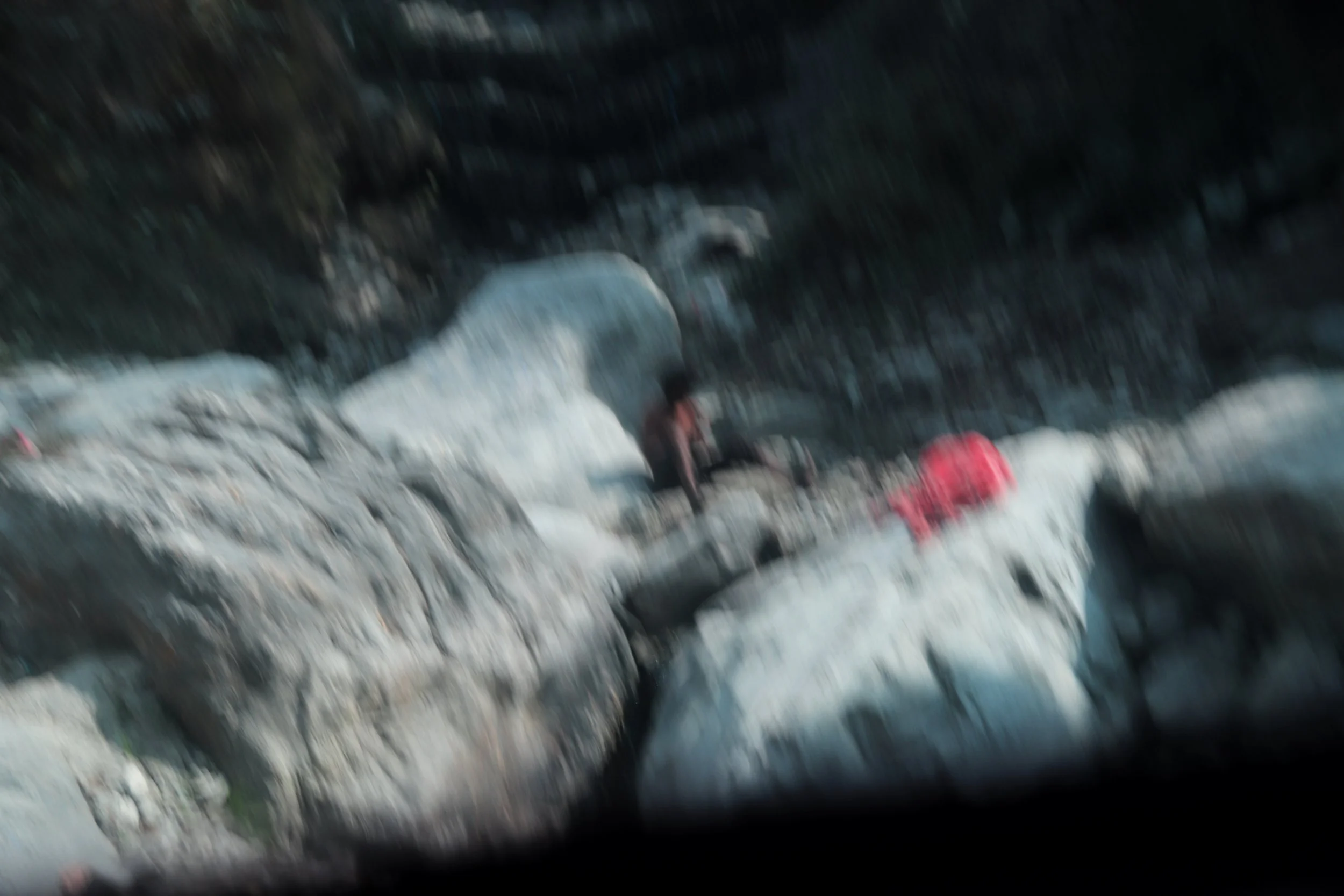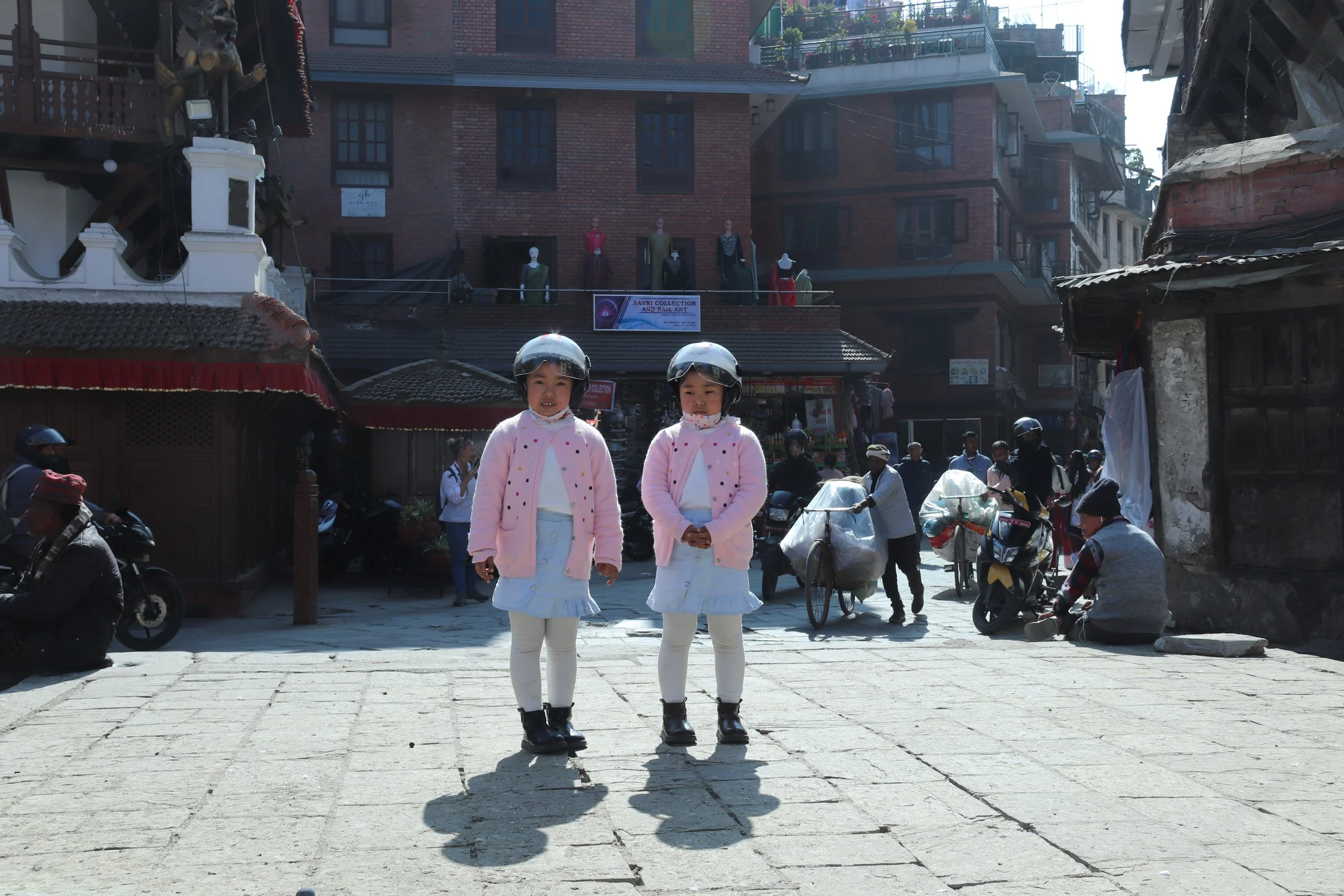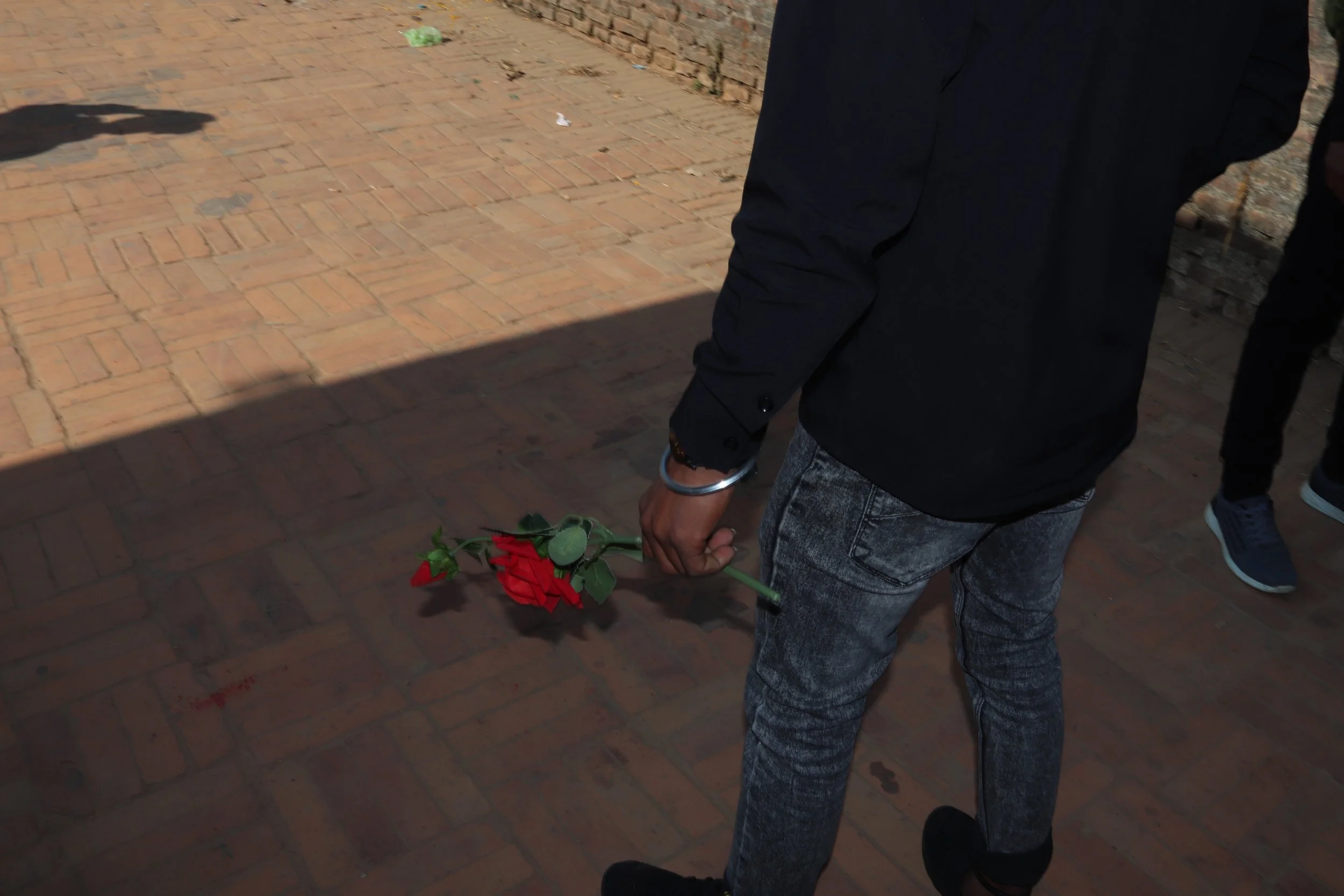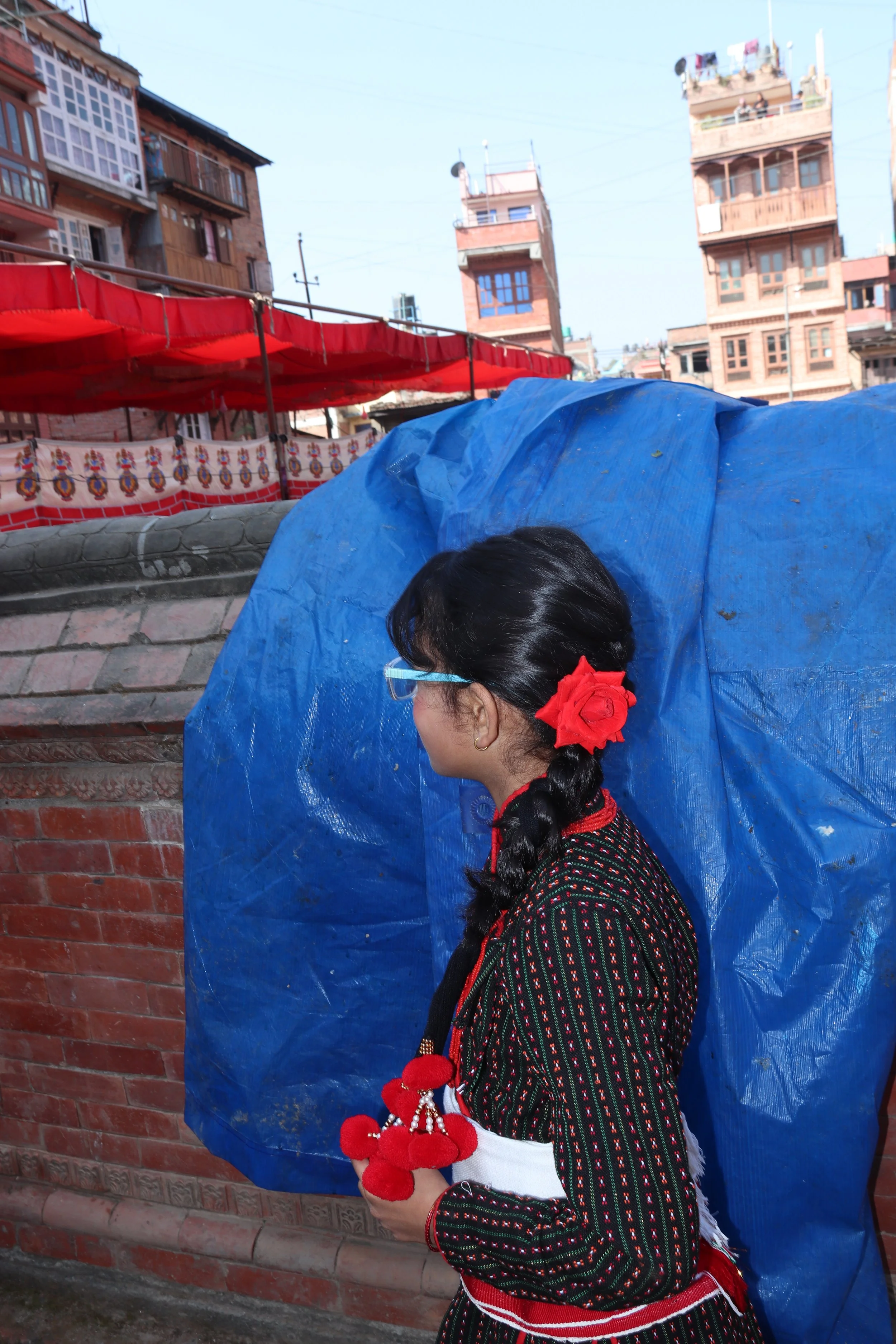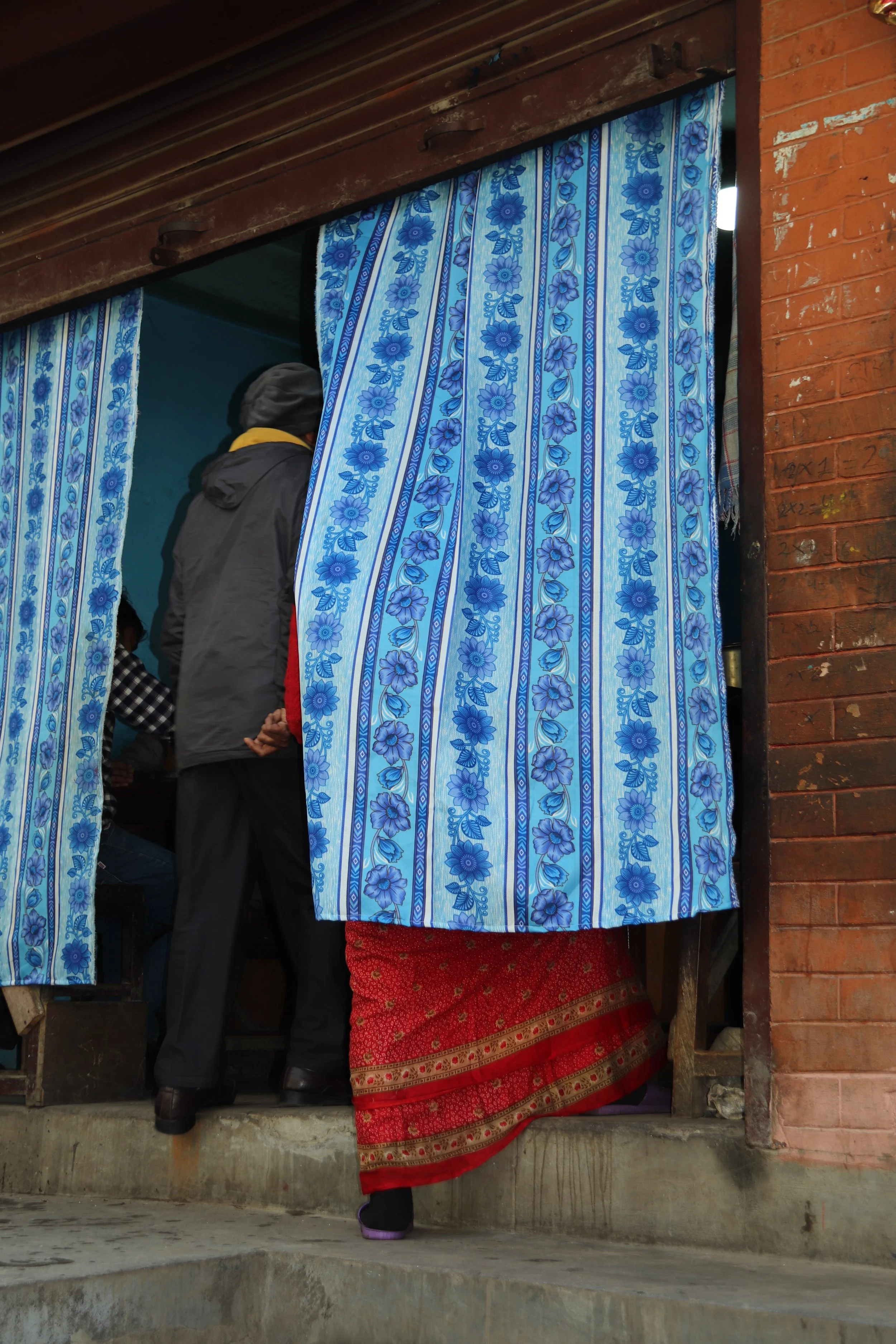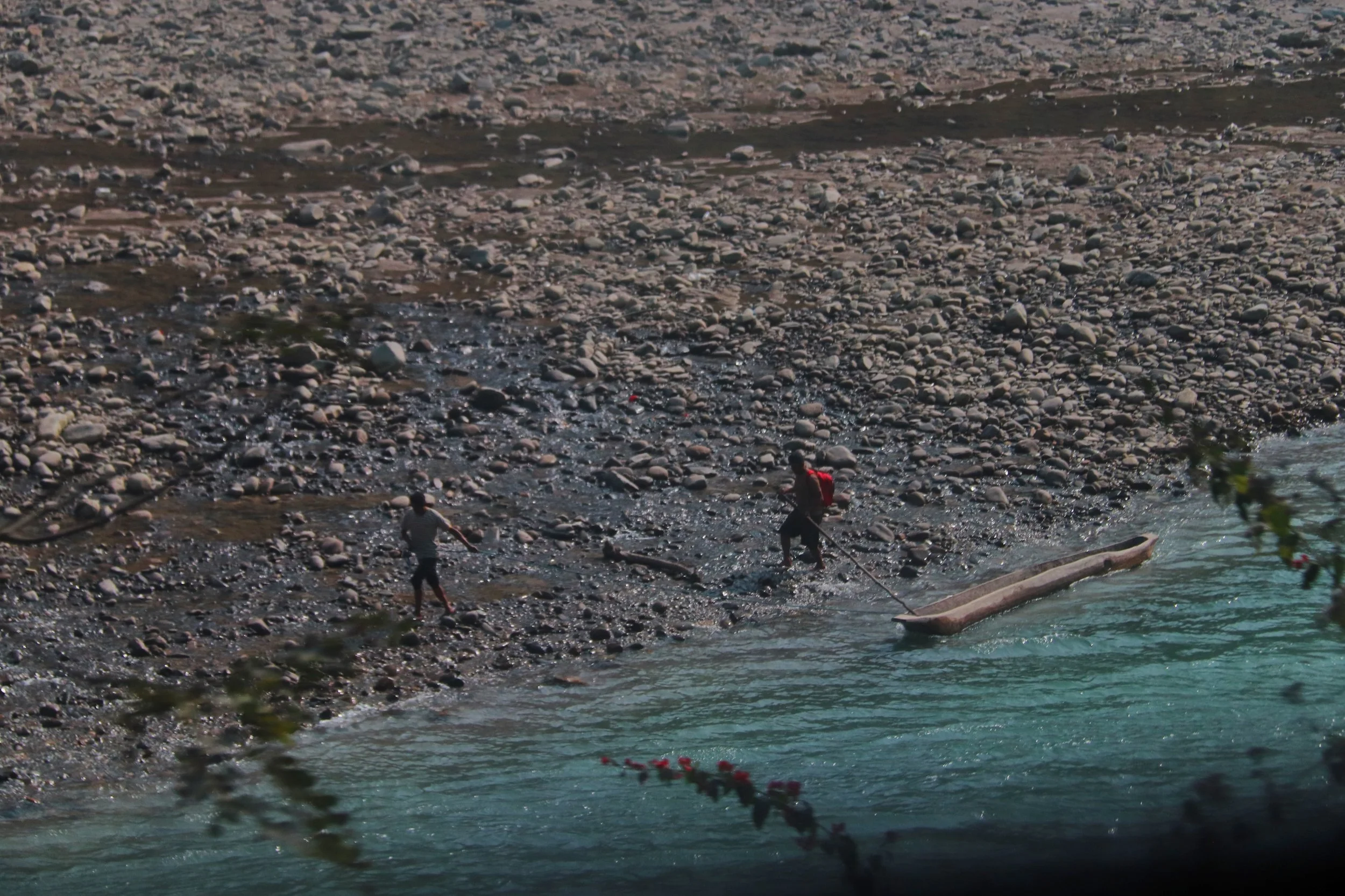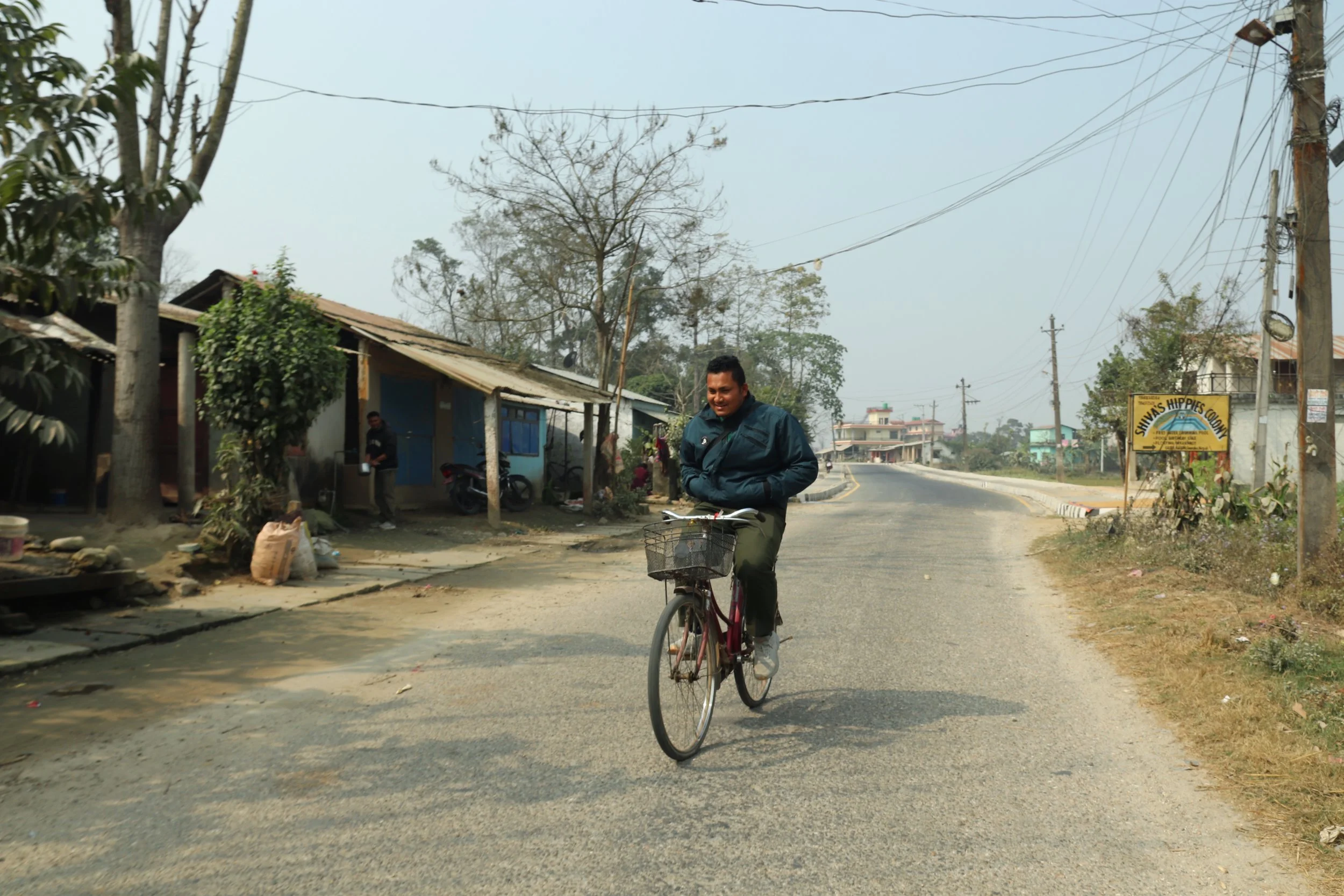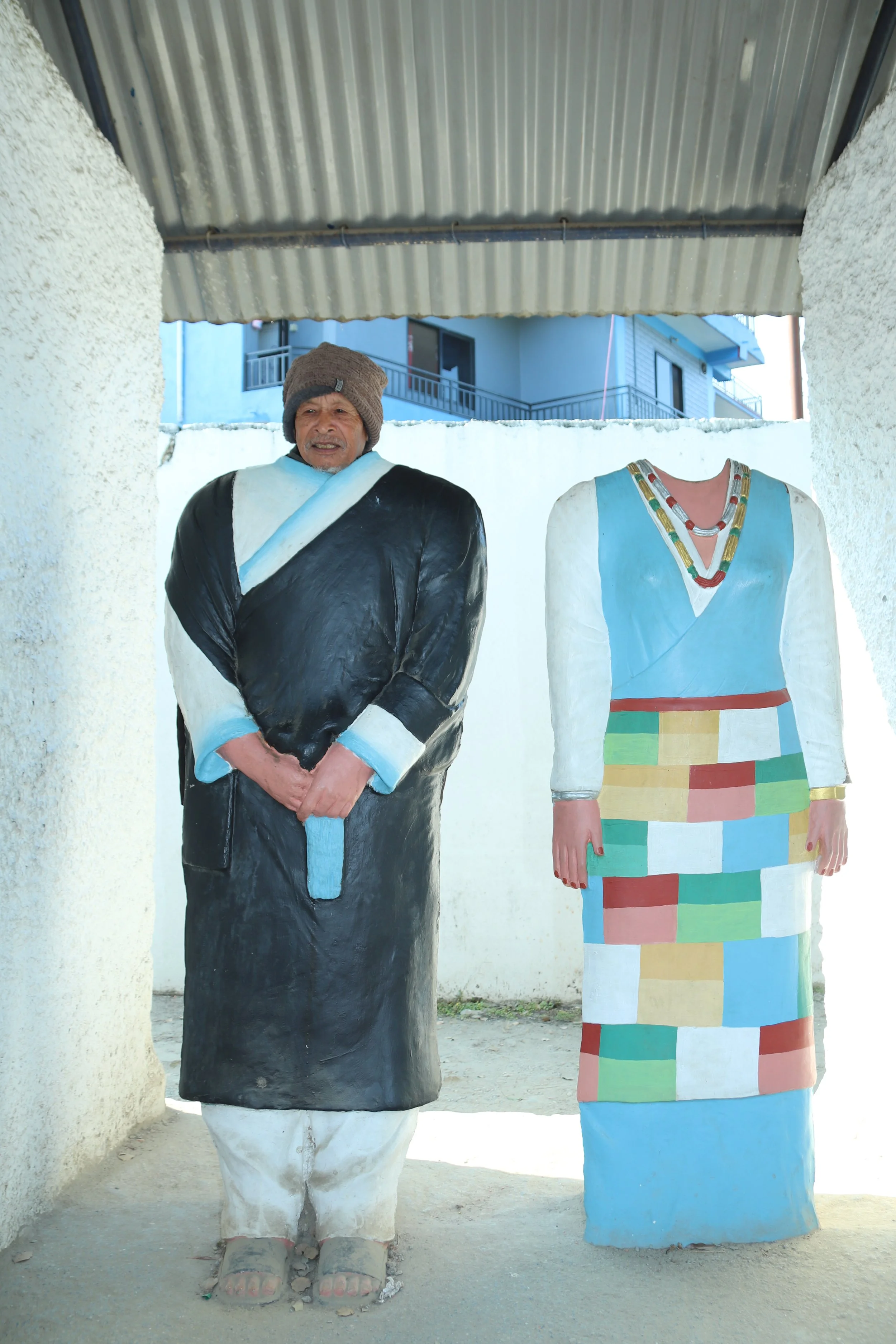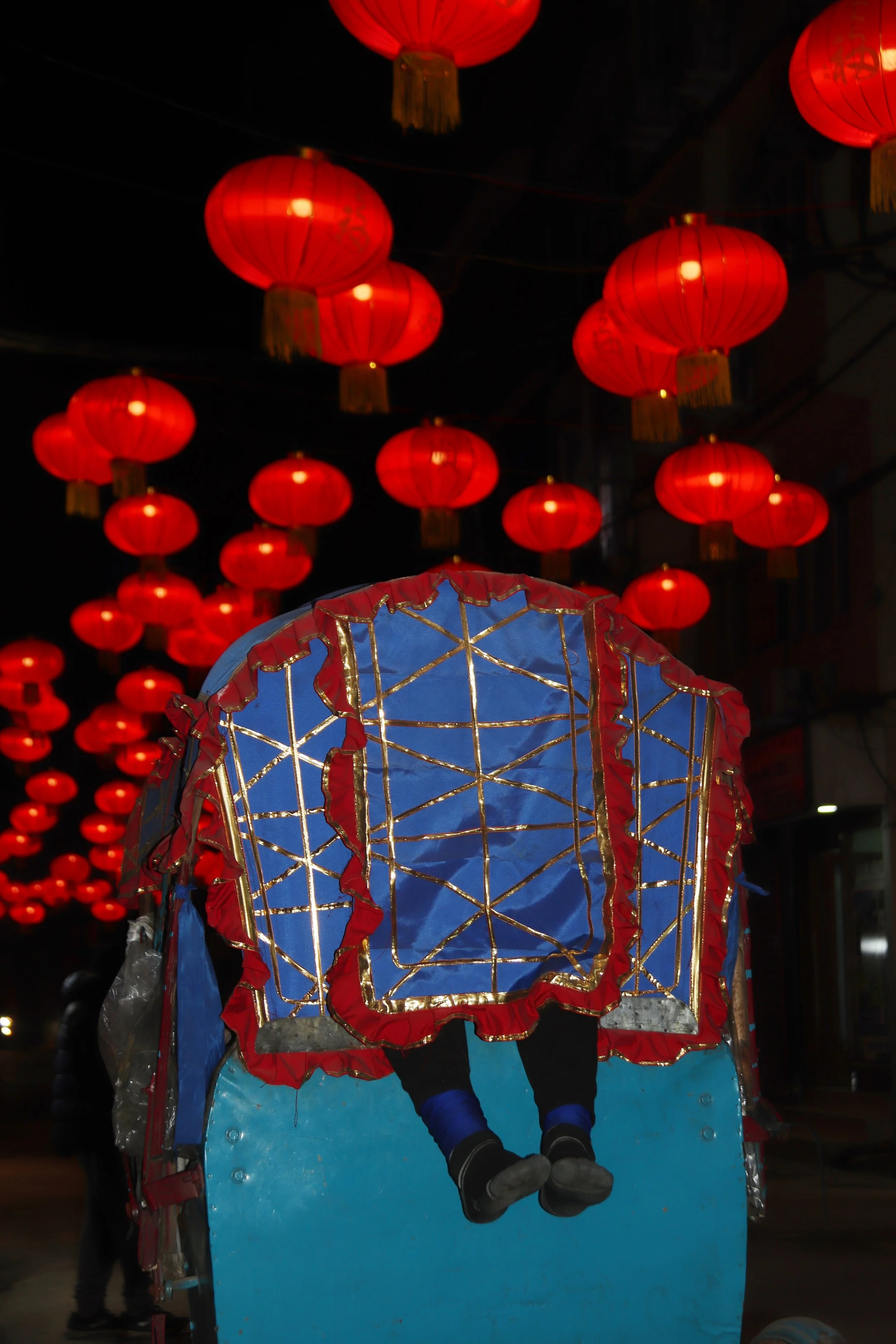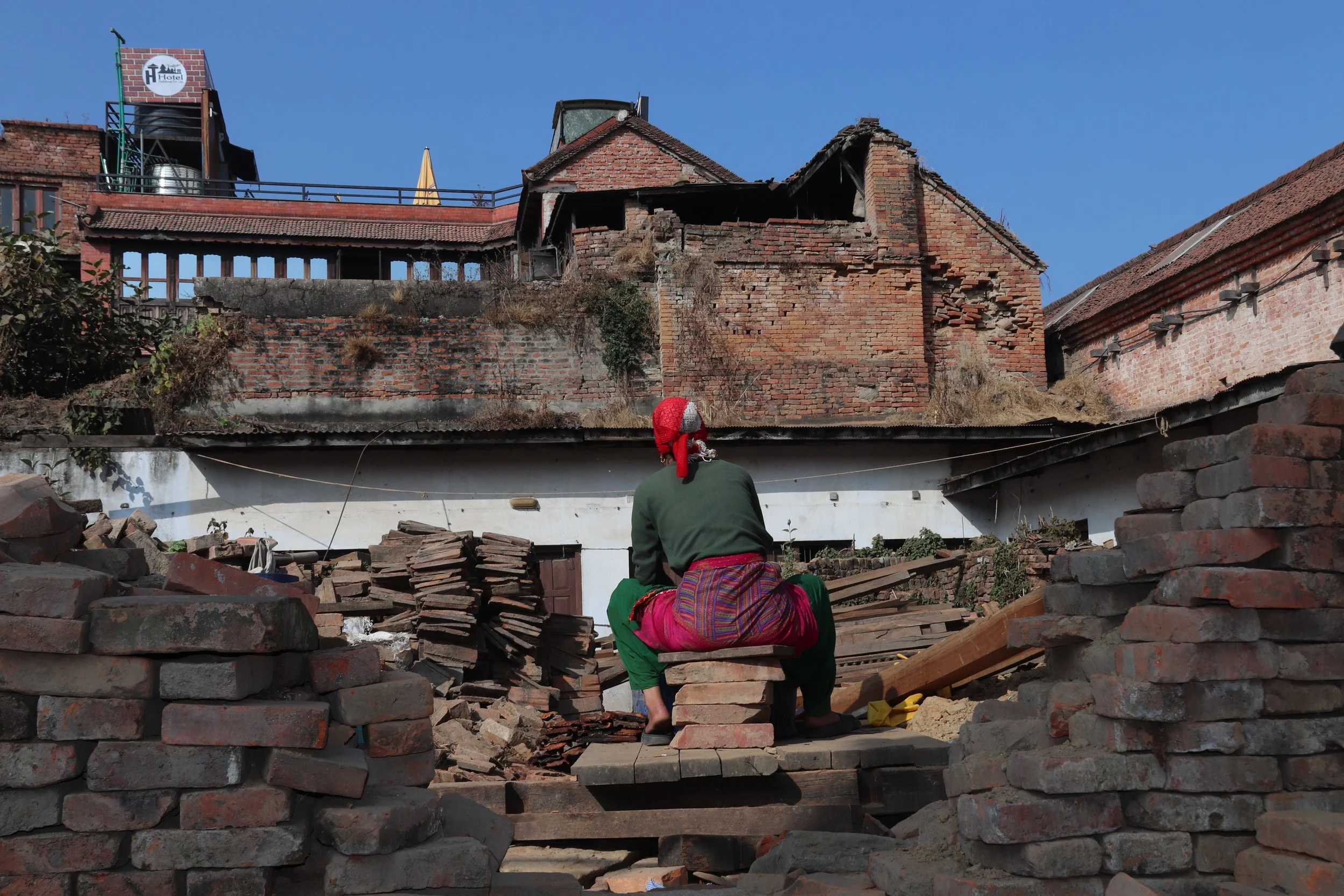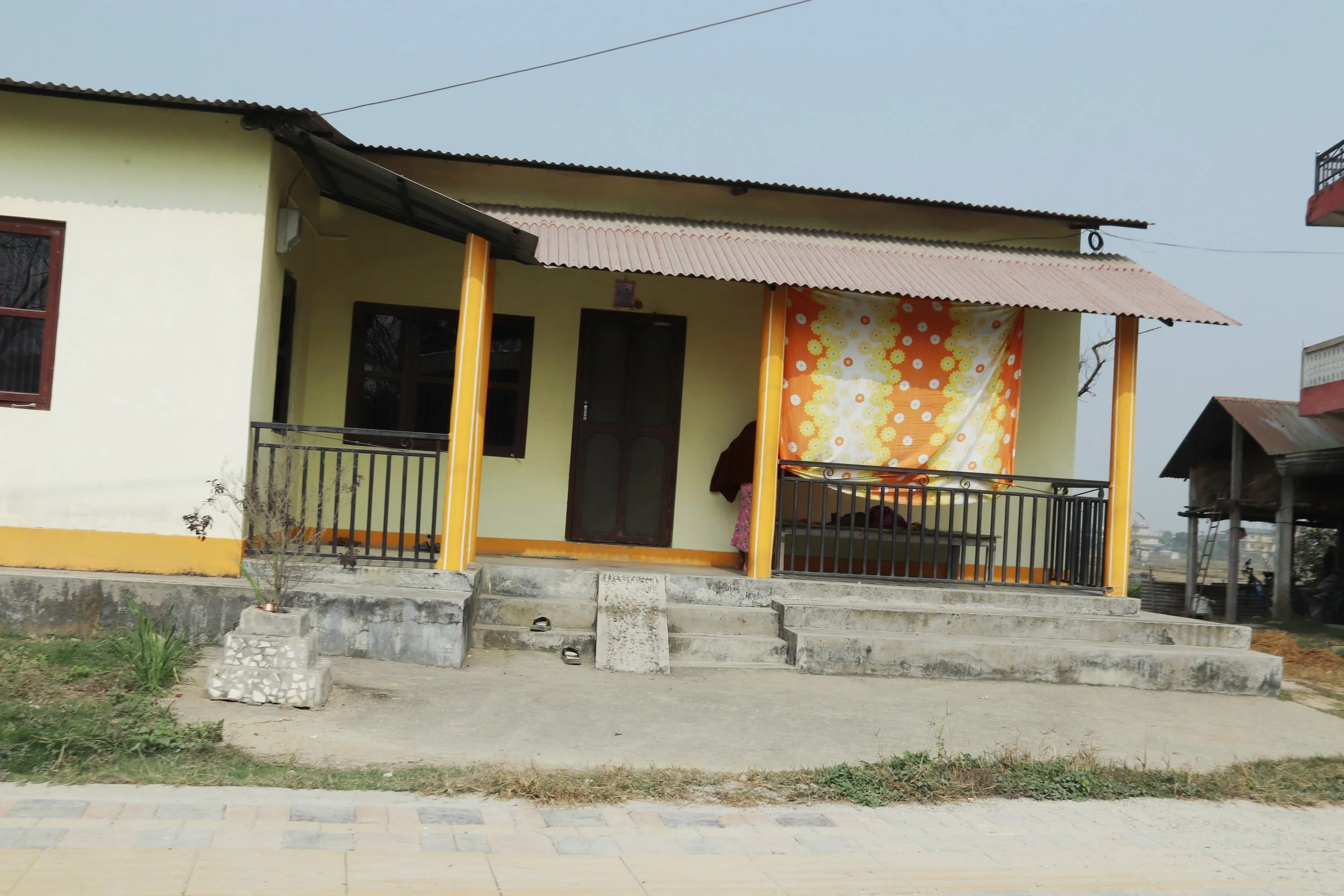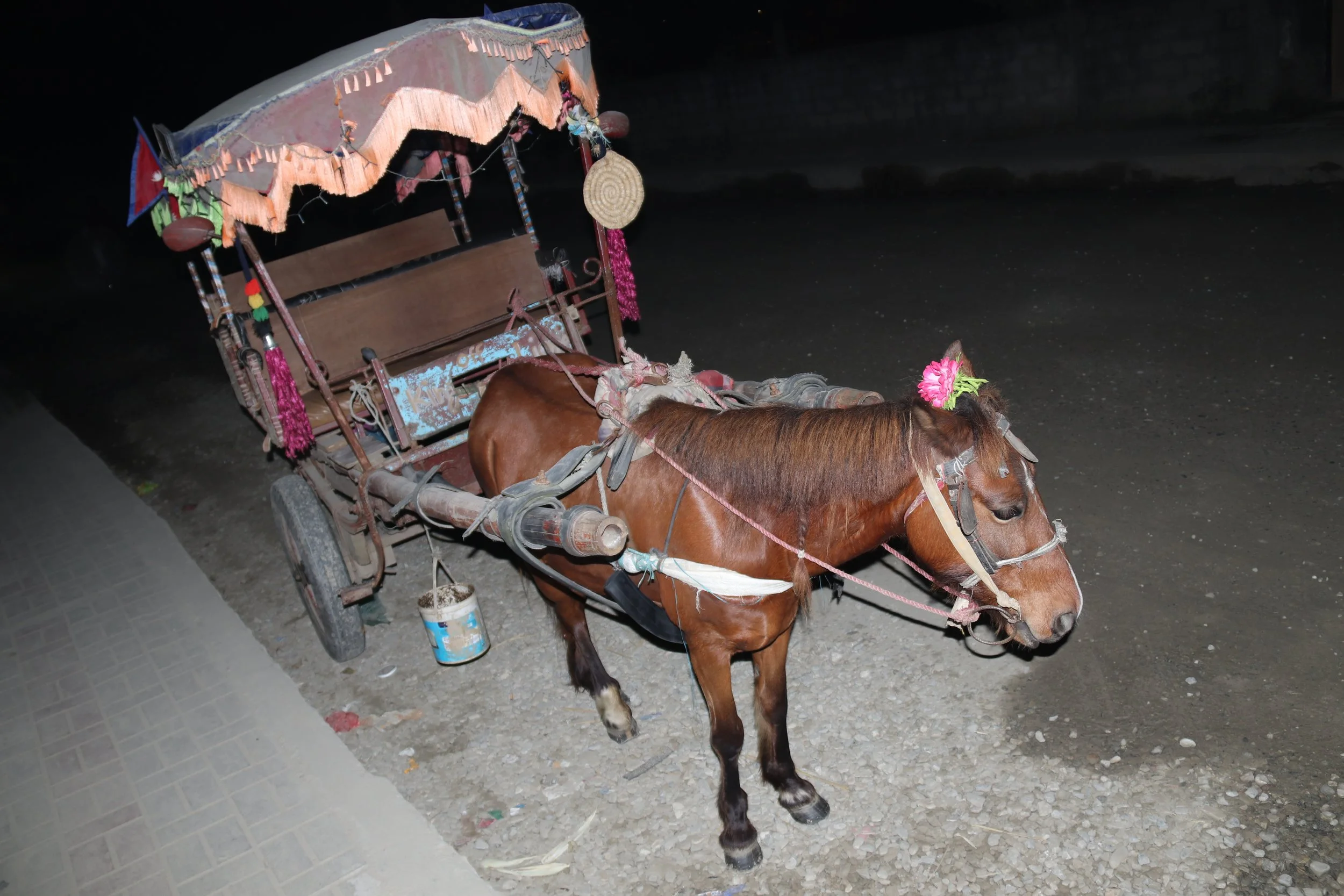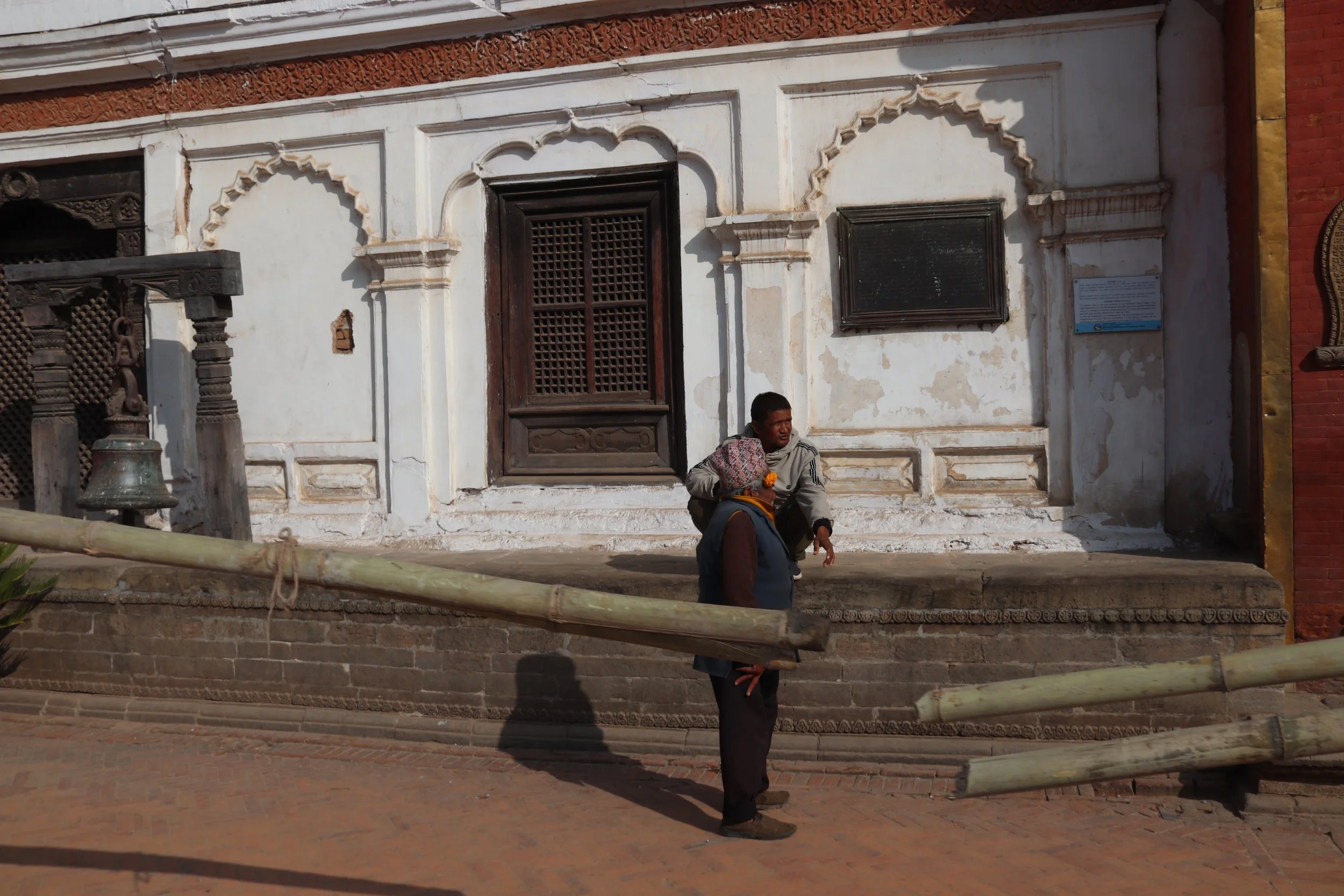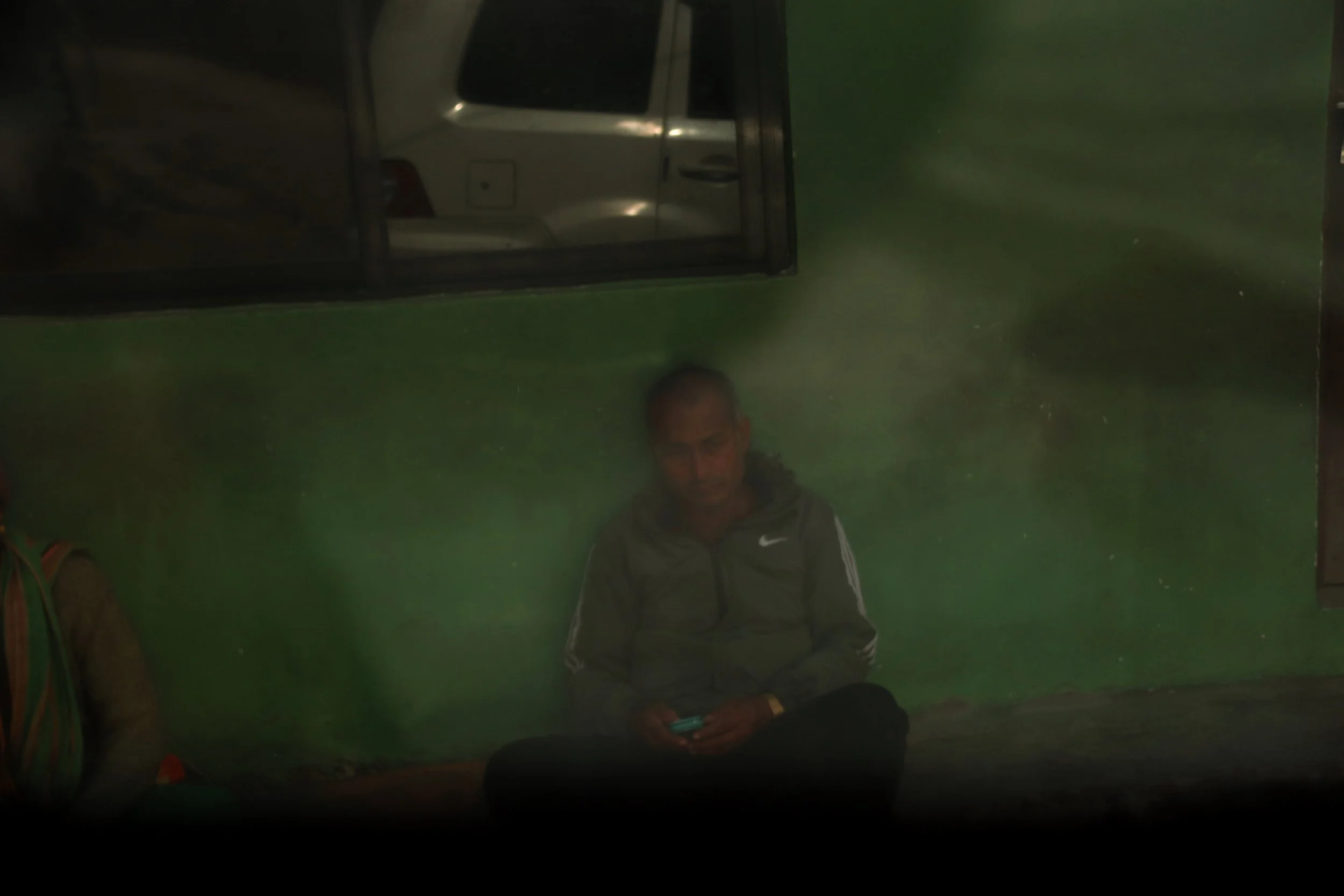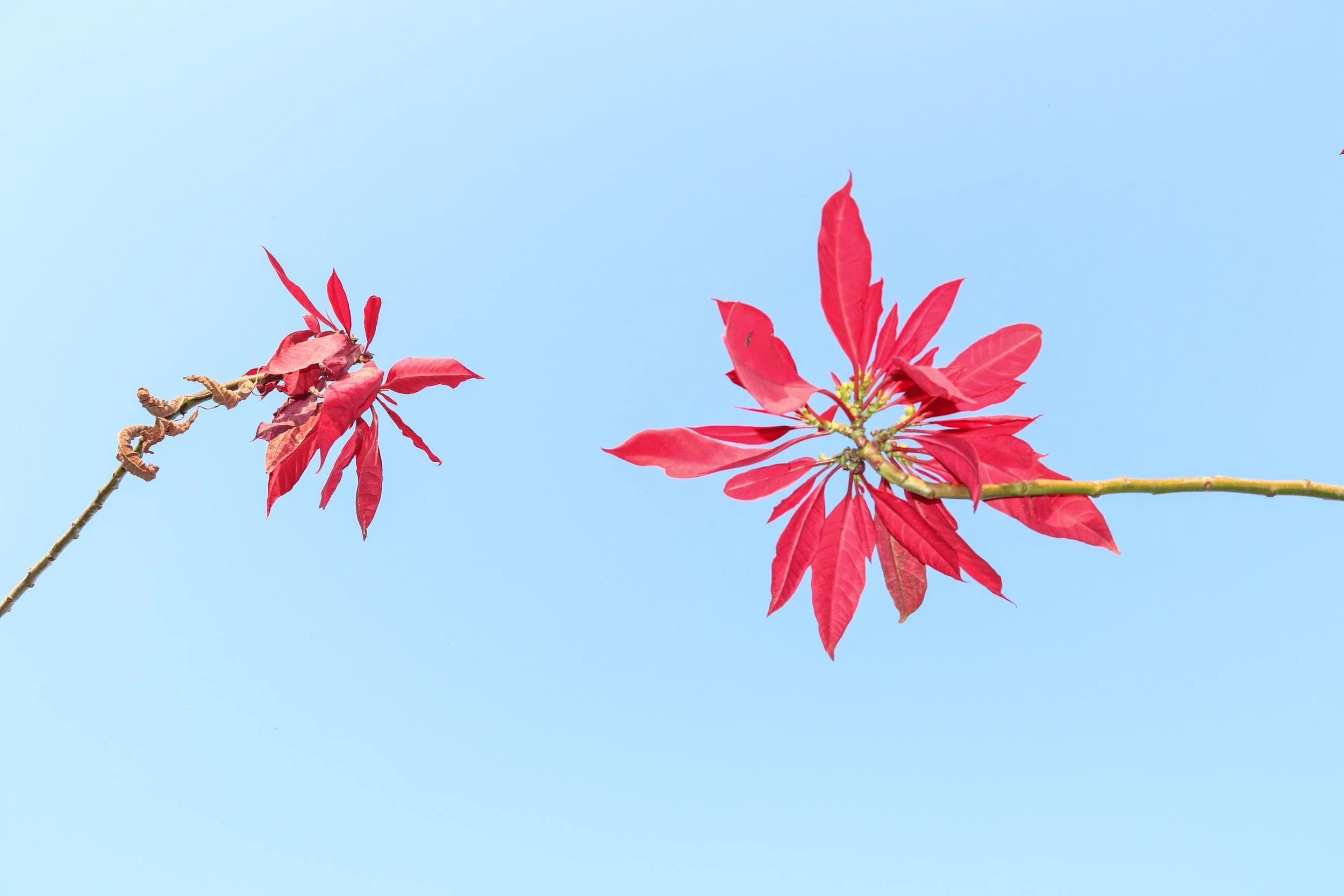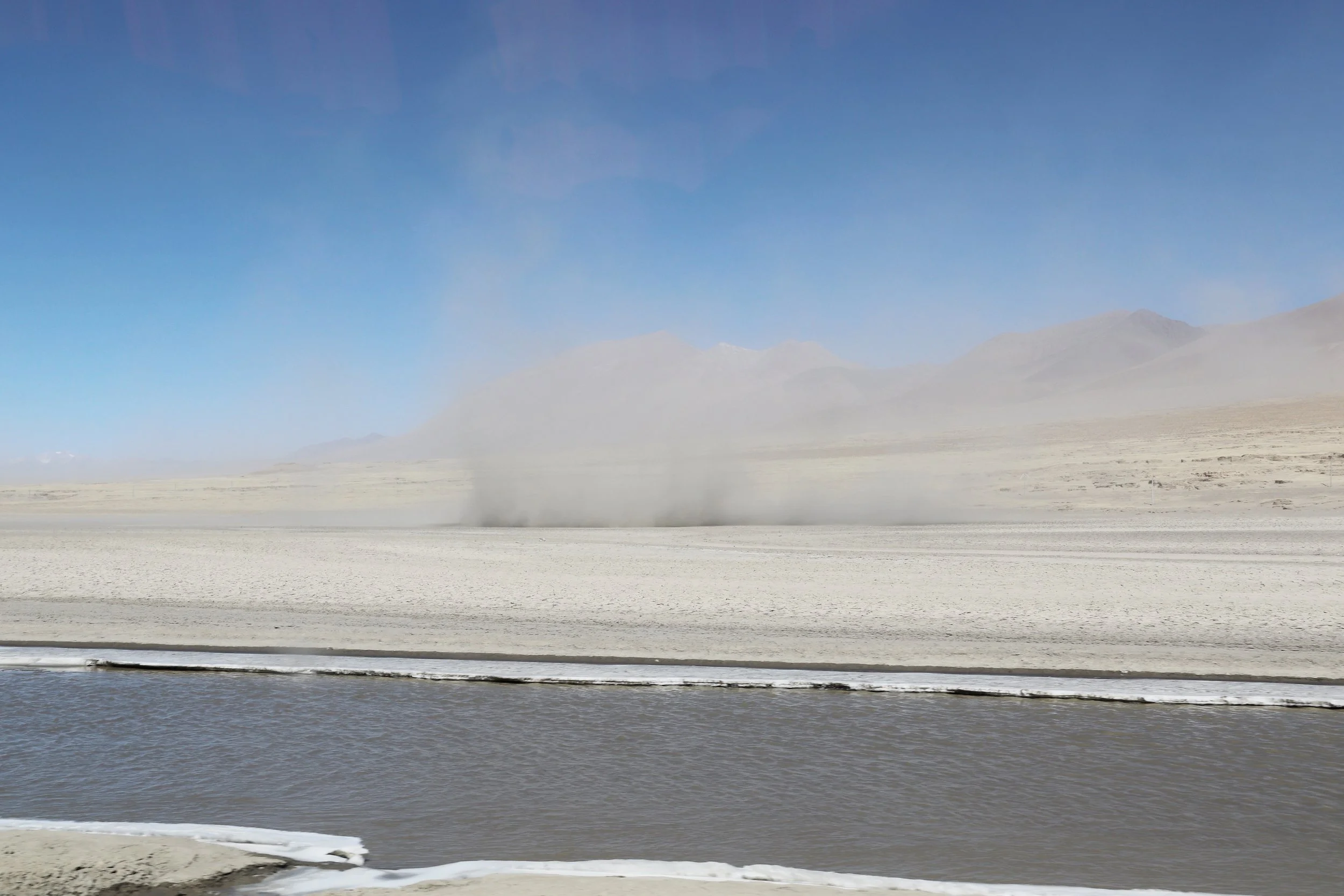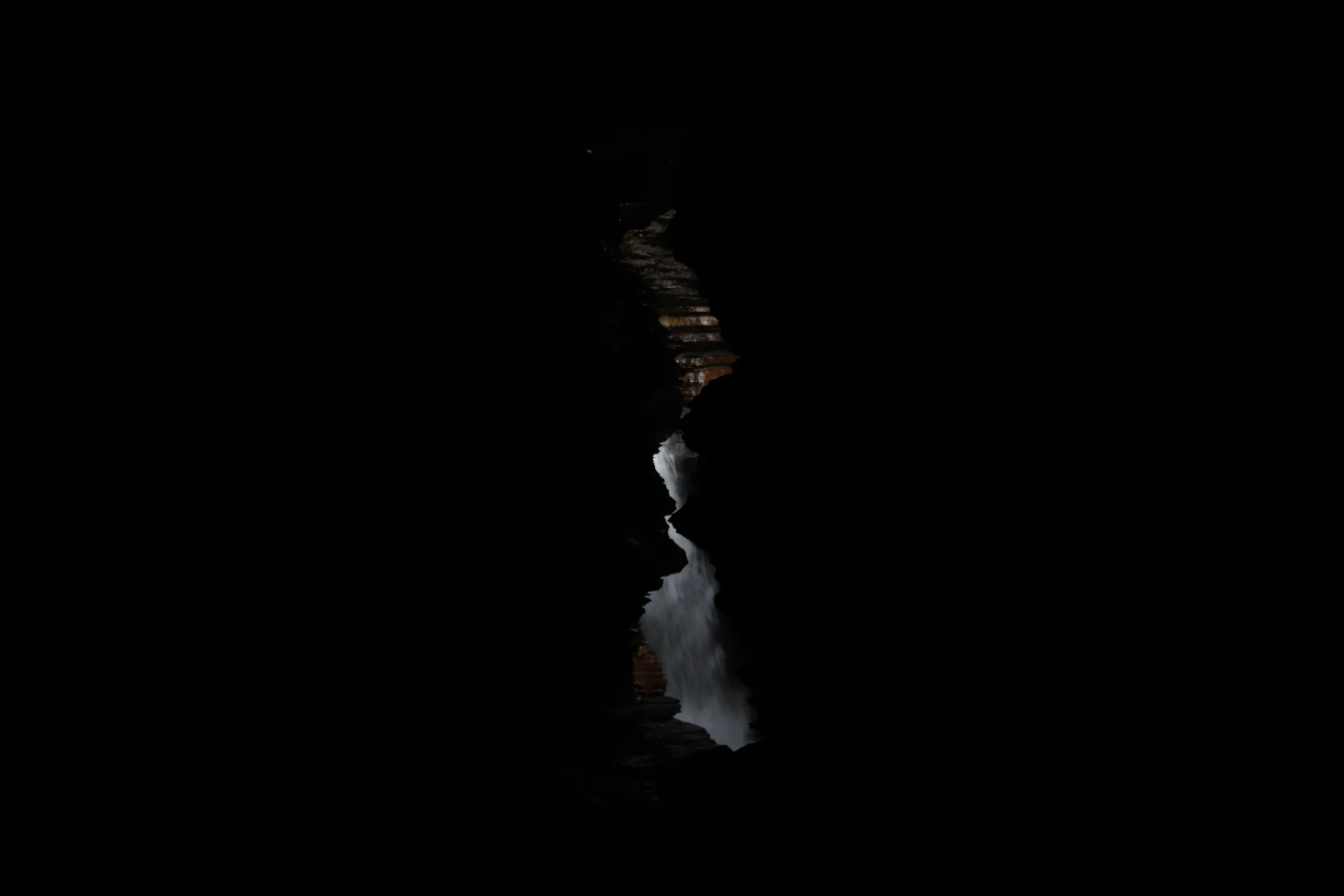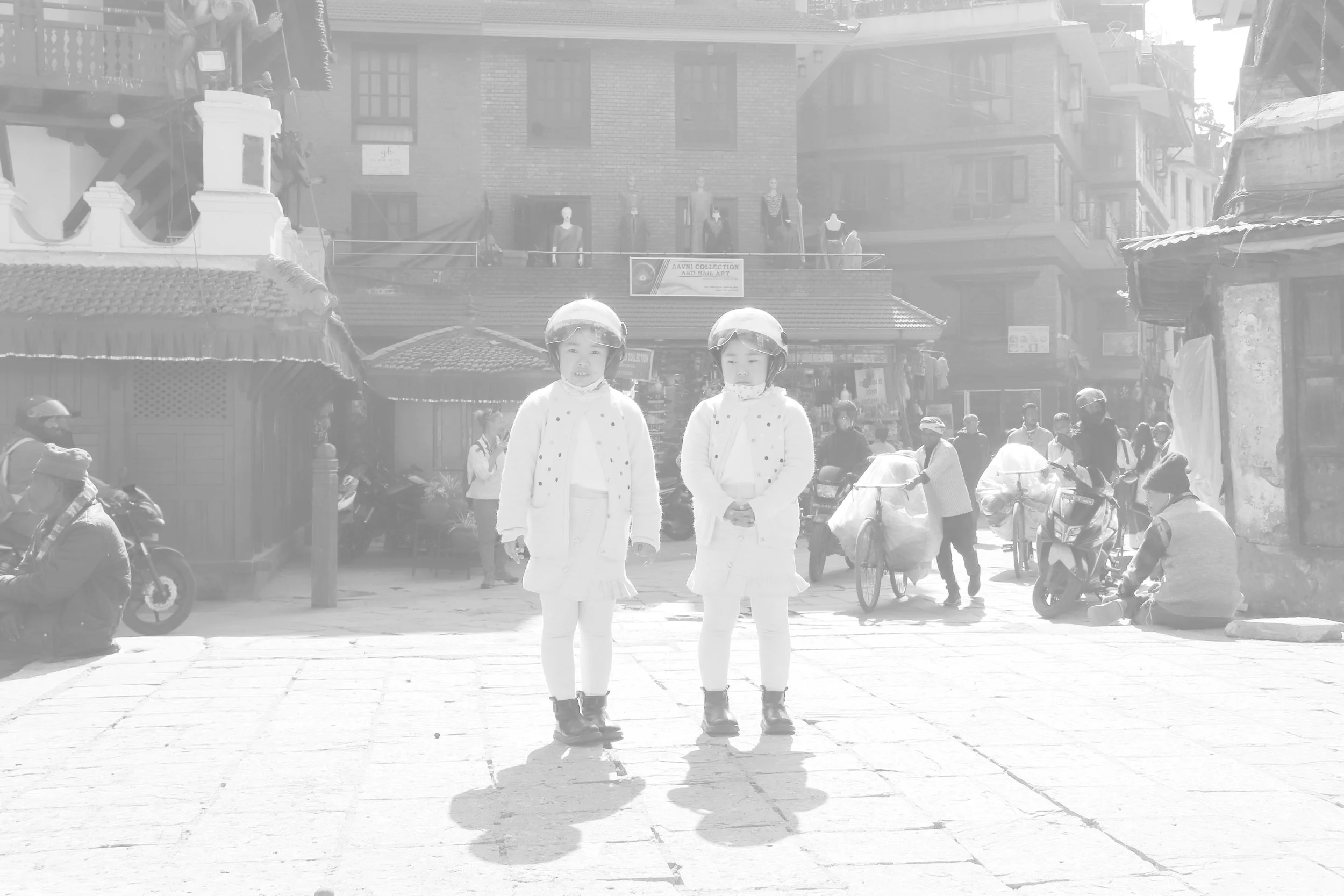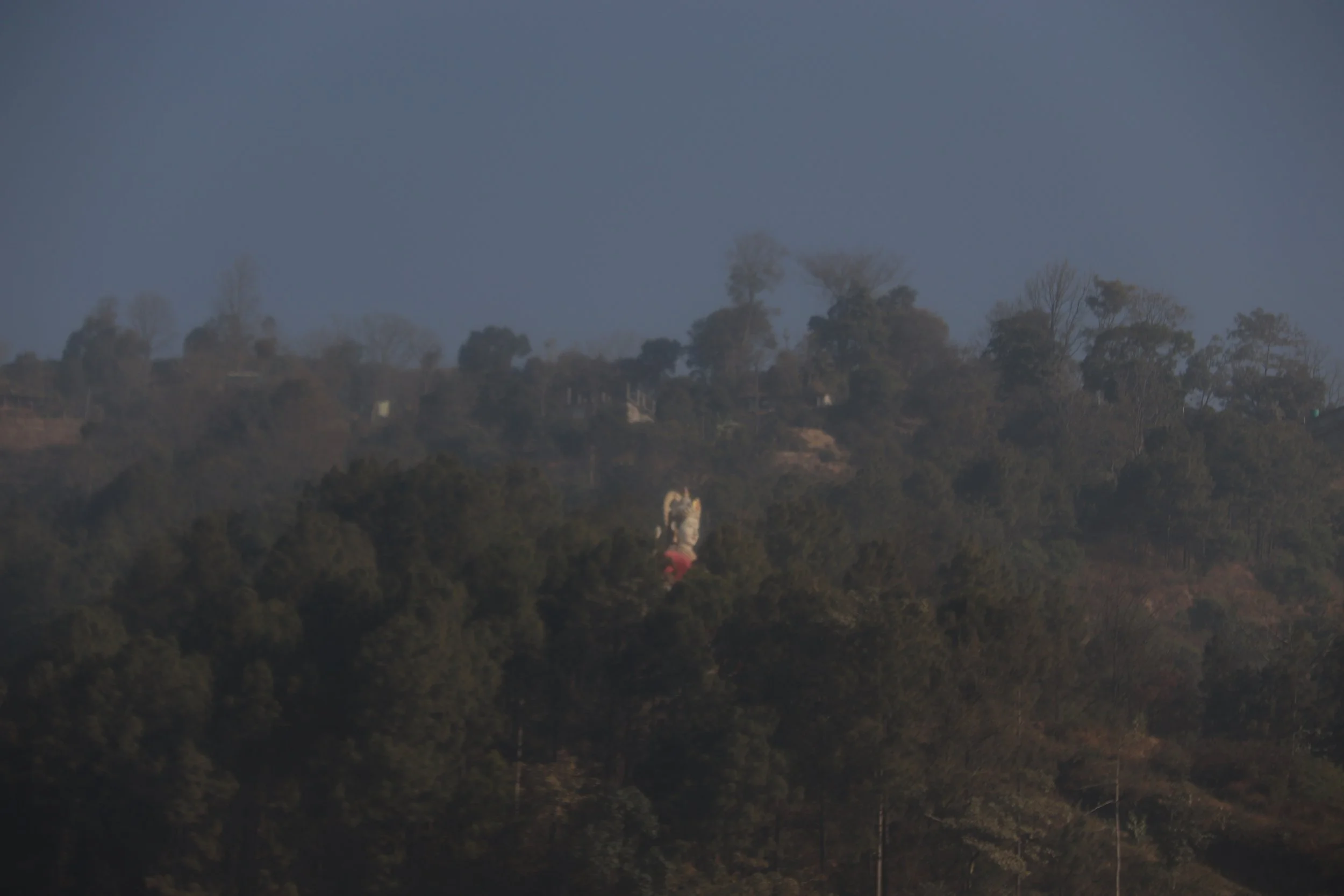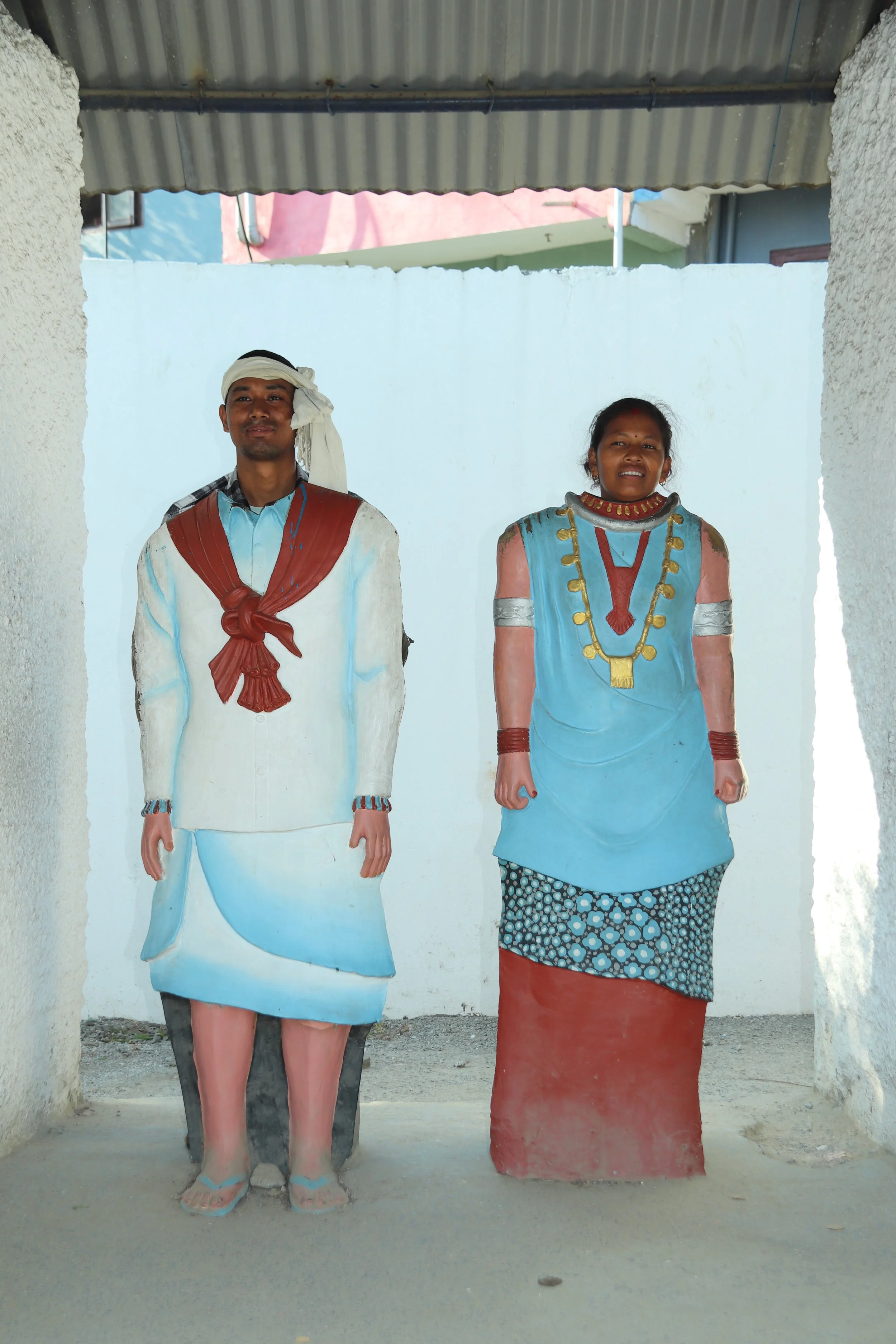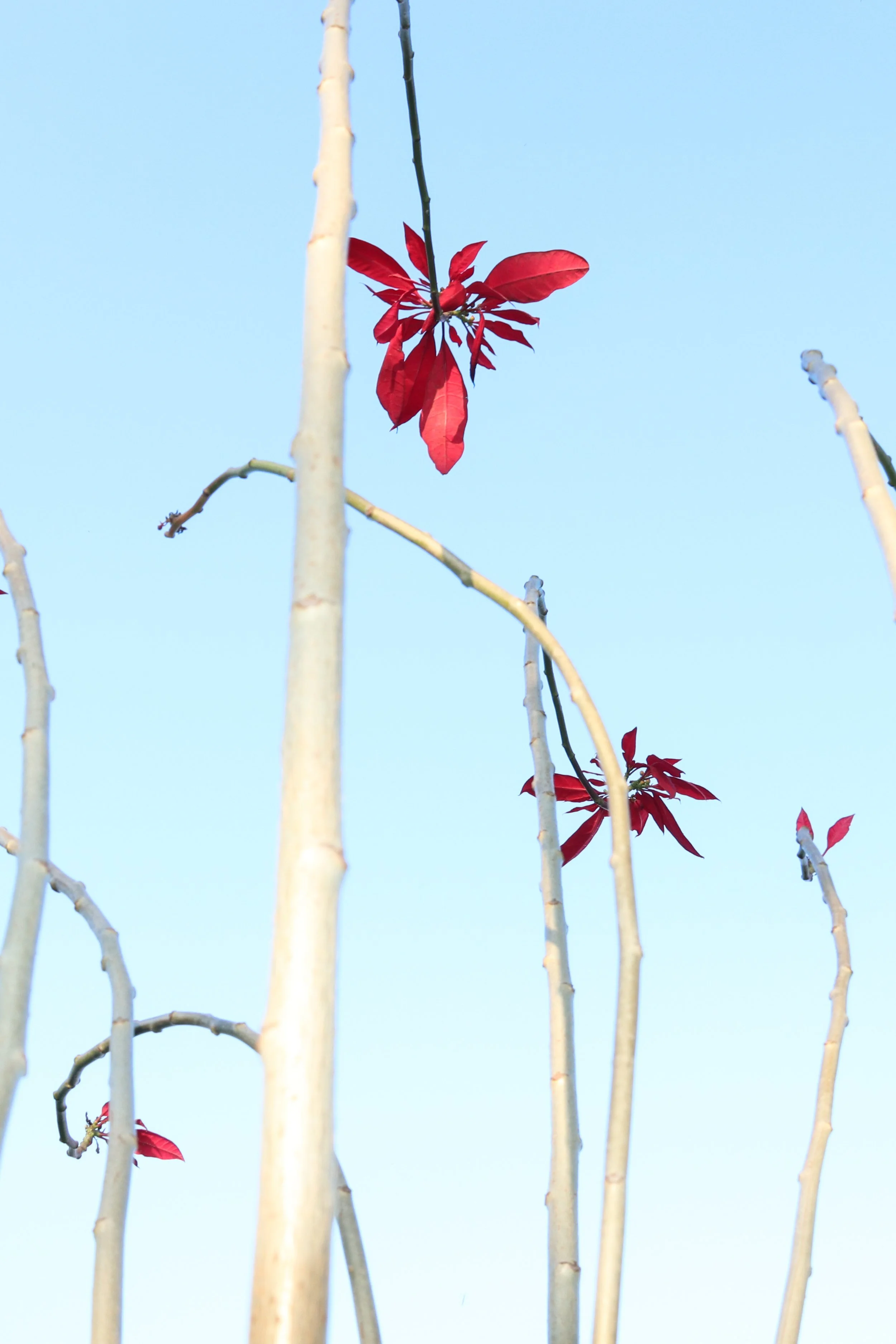生死在这里不是一条分界线,而是一种缓慢流动的状态。有人出生,有人逝去,有人正在祈祷,有人仍然流浪。贫瘠、信仰、狂喜、苦难交错着,在尘土飞扬的街头,在五颜六色的房屋下,在风吹不起的河面上。我举起相机,试图捕捉这些瞬间,可是尼泊尔的风景从来不属于镜头,它只属于流动的时间。
Here, life and death are not separate lines, but a slow, continuous flow.
Some are born, some depart, some pray, and others keep wandering. Poverty, faith, ecstasy, and suffering intertwine—in the dust-laden streets, beneath houses painted in brilliant hues, on the river surface where the wind refuses to stir. I lift my camera, trying to capture these moments, but I realize—Nepal’s landscapes have never belonged to the lens; they belong to the movement of time.
奇特旺的森林像是另一个世界,晨雾缠绕着村庄,空气中弥漫着野生气息。向导指着远处的丛林说:“昨天这里刚死了一个人。”然后,他撩起衣袖,展示一个月前和黑熊搏斗留下的伤疤。我立刻改口:“那我们不走半小时了,十五分钟就可以。”河水幽深,鳄鱼闭着眼浮在水面,老鹰在头顶盘旋,像是在为这片土地守望。而山路上的大巴像是一片被狂风裹挟的落叶,在灰蒙蒙的世界里穿行,指尖残留的香皂味成了此刻唯一的救赎。
Chitwan’s forests feel like another world, wrapped in morning mist, the air thick with the scent of the wild. The guide points toward the jungle and says, “Someone died here yesterday.” Then, rolling up his sleeves, he reveals scars from a fight with a bear a month ago. I quickly change my mind, "Let's not walk for half an hour—fifteen minutes is enough." The river is deep and still, crocodiles lie motionless with closed eyes, and eagles circle overhead, as if standing guard over this land. On the dusty mountain road, the bus feels like a lone leaf caught in a whirlwind, drifting aimlessly. The faint scent of soap on my fingertips becomes the only trace of comfort, a fleeting sense of cleanliness in a landscape shrouded in dust.
吉普车在坑洼的山路上颠簸前行,风裹挟着尘土扑面而来,像是在提醒我,这是一片真实的土地,而不是影像里的幻境。女孩们在门口缓慢地梳头,偶尔回头看我,然后继续梳头,像是在重复某种永恒的仪式。无家可归的人躺在废墟中,如同嵌在山体上的疤痕,,时间久了,就被城市遗忘。
The Jeep jolts along the rugged mountain road, the wind carrying dust against my face as if reminding me that this is a land of raw reality, not the illusion of an image. Girls sit at their doorsteps, slowly combing their hair, occasionally glancing at me before resuming their rhythmic ritual. The homeless lie among the ruins, embedded like scars on the mountainside—over time, the city forgets them.
在帕斯帕提那神庙的午后,小贩在街角叫卖着色彩鲜艳的花环,信徒们围绕着神庙转圈祈祷,猴子跳进圣河,鸽子在烧尸台上歇息,像是送行者,又像是路过的看客。生死在这里是流动的,被祝福的,也是被遗忘的。大火燃起又熄灭,骨灰沉入河底,孩子们赤脚奔跑在满是灰烬的河岸,而巴格马蒂河旁,尸体被清洗、被祝福、被火焰吞噬,河水平静,仿佛从不惊扰这些仪式,对岸的人静静观看,如同看一场再普通不过的告别。信仰在这里显得格外笃定,或者说,死亡被赋予了过于完整的意义,完整到让我一度怀疑,它是否真的可以不被悲伤所浸透,我努力让自己去理解:在他们的信仰里,死亡是一场被祝福的旅程,但我依然无法释怀。我看到一个小孩站在亲人身旁,忍不住放声痛哭,他的哭喊击穿了这个闷热无风的午后,而我最终还是流下眼泪。
On an afternoon at Pashupatinath Temple, street vendors called out, selling vibrantly colored flower garlands, while devotees circled the temple in prayer. Monkeys leaped into the sacred river, and pigeons rested on the cremation ghats—like mourners, or perhaps just passing spectators.
Life and death flow here, both blessed and forgotten.
Fires ignited and faded, ashes sank into the riverbed, and children ran barefoot along the banks covered in remnants of the departed. Along the Bagmati River, bodies were washed, blessed, and consumed by flames. The water remained still, seemingly undisturbed by these rituals, while on the opposite bank, people watched in silence, witnessing yet another ordinary farewell.
Faith here felt unwavering—or perhaps, death had been given such a complete meaning that I began to wonder: Could it truly remain untouched by sorrow? I tried to understand—to accept that, in their belief, death was a journey of blessing. Yet, I still could not let go.
I saw a child standing beside his loved one, unable to hold back his cries. His wails pierced through the hot, windless afternoon, cutting through the stillness. And in that moment, I, too, could not hold back my tears.
博卡拉的湖水平静得不真实,像是被世界遗忘的一角。这里的人们日出而作,日落后坐在门口聊天,晾晒衣物的绳索在巷子间拉得很低,鲜艳的布料在风里翻飞,像是一场无声的庆典。我走进一家韩餐厅,墙上挂满了摄影作品,那些画面定格着远方的西藏与这里的湖泊,似乎在讲述着两种相隔千里的静谧。她们在异国他乡相遇,相爱,在这里定居,共同经营这家店。我看着这些影像,突然觉得,有些人的归属并不需要定义,而有些风景,也可以成为家的形状。
Pokhara’s lake is eerily calm, as if the world itself has forgotten this place. People rise with the sun, work through the day, and sit outside their homes in the evening, chatting as laundry hangs low between alleyways. The vivid fabrics flutter in the breeze like a quiet celebration. I step into a Korean restaurant, its walls adorned with photographs—images capturing the distant landscapes of Tibet and the still waters of this town, as if telling a story of two places bound by an unspoken tranquility. They met in a foreign land, fell in love, and made this place their home, running the restaurant together. Looking at these images, I suddenly realize—some people’s sense of belonging doesn’t need a definition, and some landscapes can become the shape of home.
